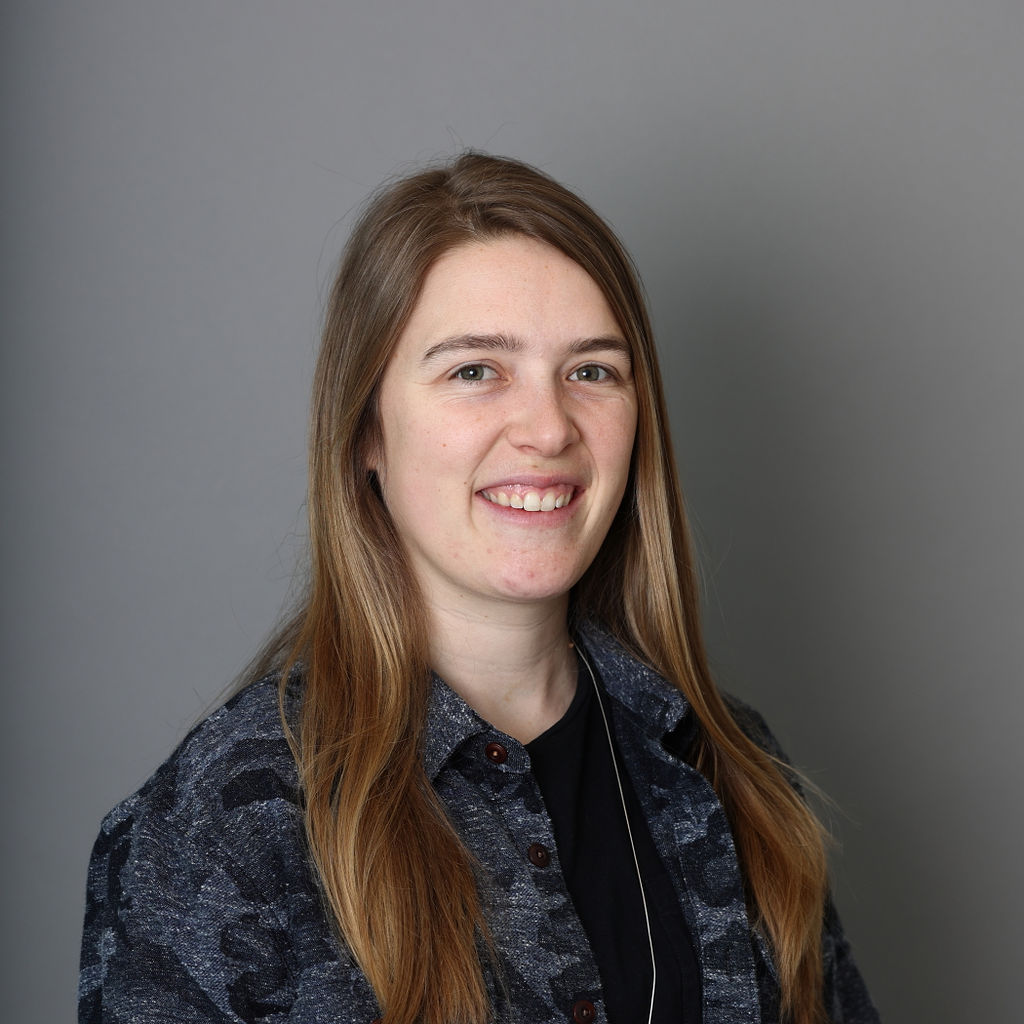Meet the 2025 Cohort
Discover the 2025 Women4Climate mentees driving bold climate action across Metro Vancouver. Explore their bios, projects, and the experienced leaders supporting their journey.
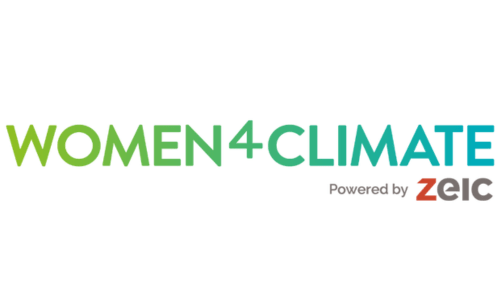

Mentorship

Training

Networking
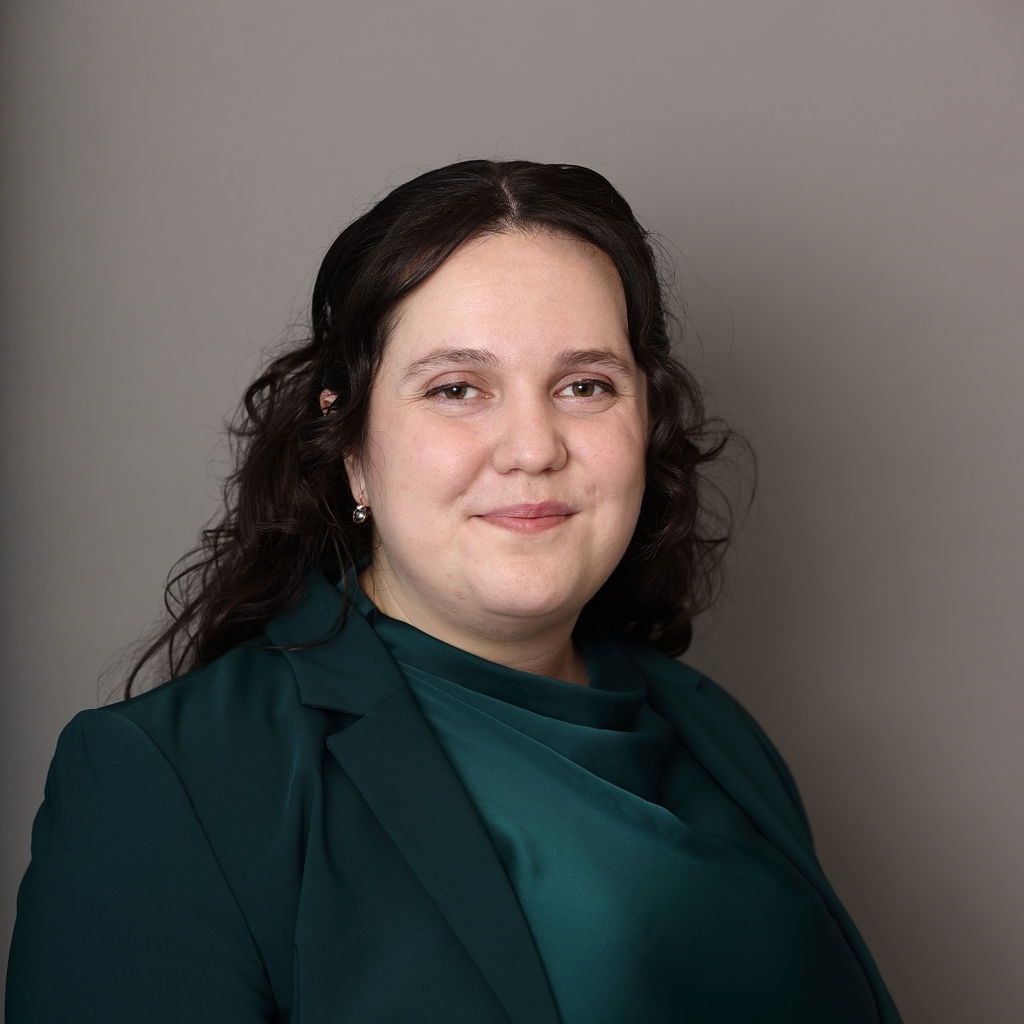
Mariana Berlanga
Initiative
Coastal Flood Management Strategy Outreach and Education
Role and Organization
Sustainability and Energy Coordinator at City of Port Moody
Mentor
Donna-Lynn Rosa,
Chief Executive Officer,
Atira Women's Resource Society
About Mariana
Mariana Berlanga is dedicated to advancing climate equity and resilience. She believes that addressing current climate risks requires communities to mitigate, prepare for, respond to, and recover from climate-related impacts, and she hopes to contribute to this work. She holds a Master’s degree in Sustainability Management and an undergraduate degree in Applied Biology. Her diverse experience spans sustainability management in the private sector, environmental work in precision agriculture, research, and municipal government, equipping her with a broad skill set in systems thinking and change management essential for working on climate action initiatives.
Currently, Mariana works on the climate action team in Port Moody, focusing on projects that enhance climate adaptation and resilience. In her free time, she enjoys expressing her creativity through sewing, embroidery, and beading, often repurposing thrifted clothing to give it a new life.
Currently, Mariana works on the climate action team in Port Moody, focusing on projects that enhance climate adaptation and resilience. In her free time, she enjoys expressing her creativity through sewing, embroidery, and beading, often repurposing thrifted clothing to give it a new life.
About Initiative
Mariana Berlanga is a Sustainability and Energy Coordinator with the City of Port Moody, leading the development of the Coastal Flood Management Strategy. This initiative is a key component of the City's Climate Action Plan, focusing on climate adaptation by incorporating sea level rise and flood risk assessments into land use planning and shoreline management.
As a coastal community, Port Moody is already experiencing the impacts of sea level rise and urban flooding, which are expected to intensify in the coming decades. The strategy aims to proactively reduce vulnerabilities and enhance resilience by conducting flood risk analysis, mapping inundation zones, and assessing storm surge impacts. Public and stakeholder communication is a core component of this initiative, ensuring that the community is informed and actively involved in understanding coastal hazards.
By fostering collaboration across interested groups and breaking down silos, this strategy will help Port Moody prepare for and respond to the long-term challenges of coastal flooding, leading to a more Climate resilient community.
As a coastal community, Port Moody is already experiencing the impacts of sea level rise and urban flooding, which are expected to intensify in the coming decades. The strategy aims to proactively reduce vulnerabilities and enhance resilience by conducting flood risk analysis, mapping inundation zones, and assessing storm surge impacts. Public and stakeholder communication is a core component of this initiative, ensuring that the community is informed and actively involved in understanding coastal hazards.
By fostering collaboration across interested groups and breaking down silos, this strategy will help Port Moody prepare for and respond to the long-term challenges of coastal flooding, leading to a more Climate resilient community.
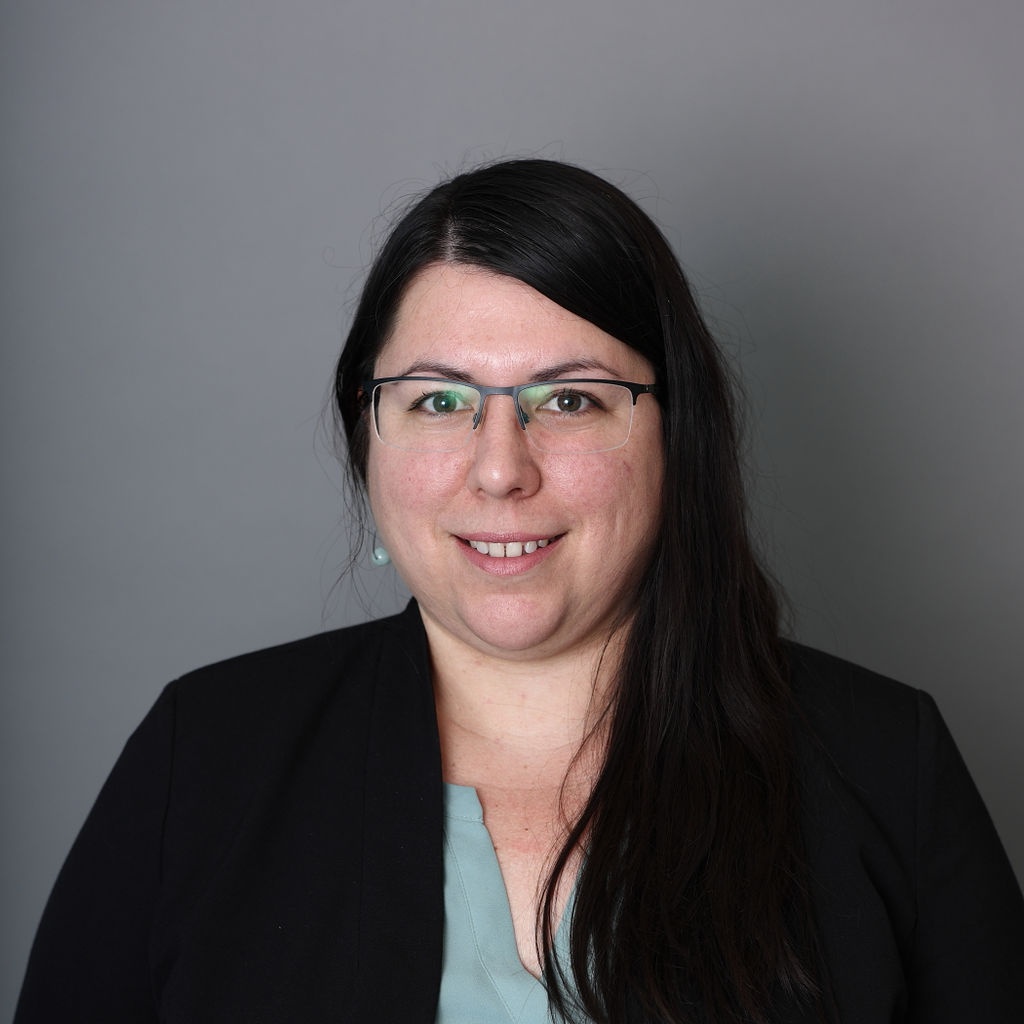
Virginie Brunetaud
Initiative
Engineers and Geoscientists BC’s Organizational Climate Change Strategy
Role and Organization
Climate Strategist at Engineers and Geoscientists BC
Mentor
Melina Scholefield, Executive Director,
Zero Emissions Innovation Centre (ZEIC)
About Virginie
Virginie’s passion for environmental conservation is driven by her motivation to create a more sustainable world. She strives to make a positive impact by fostering collaboration, innovation, and equity, inspiring others to steward change. With her background in environmental science, and more recently in climate action, Virginie brings a unique combination of expertise, passion and a commitment to driving meaningful change..
Originally from France, Virginie holds a Master's degree in water resources management. Her career began in Australia, where she worked as a hydrogeologist for a global organization, focusing on groundwater management and contaminated site remediation in the mining and oil and gas sectors. She moved to Vancouver, Canada about ten years ago, continuing her hydrogeology work in construction and environmental projects for a leading consulting firm. This led her to recognize the profound link between water projects and climate change. Consequently, she shifted her focus to assessing climate change impacts and risks on water resources and contaminated sites. More recently, Virginie has been working as a Climate Strategist at Engineers and Geoscientists BC. In her free time, she enjoys cooking with her husband and going on camping trips to immerse herself in the beauty and tranquility of the wilderness
Originally from France, Virginie holds a Master's degree in water resources management. Her career began in Australia, where she worked as a hydrogeologist for a global organization, focusing on groundwater management and contaminated site remediation in the mining and oil and gas sectors. She moved to Vancouver, Canada about ten years ago, continuing her hydrogeology work in construction and environmental projects for a leading consulting firm. This led her to recognize the profound link between water projects and climate change. Consequently, she shifted her focus to assessing climate change impacts and risks on water resources and contaminated sites. More recently, Virginie has been working as a Climate Strategist at Engineers and Geoscientists BC. In her free time, she enjoys cooking with her husband and going on camping trips to immerse herself in the beauty and tranquility of the wilderness
About Initiative
Virginie is a Climate Strategist at Engineers and Geoscientists BC, the regulatory body overseeing the engineering and geoscience professions across the province, where she is developing the Organizational Climate Change Strategy.
Climate change presents complex and evolving challenges and risk that requires action from professional engineers and geoscientists. These professionals apply scientific principles and leverage their expertise to enable, design and implement low carbon, climate resilient solutions.
The strategy will detail the programs and initiatives proposed by the organization to advance climate action and sustainability within its operations and through its regulatory role. Virginie's work focuses on three main initiatives that would support professional engineers and geoscientists in integrating climate change into their professional practice:
1. Redesigning and expanding the Climate Change Information Portal to provide more climate change and sustainability related resources across various industries and sectors.
2. Enhancing the Continuing Education Program by offering more climate change and sustainability related webinars, workshops and trainings sessions.
3. Establishing a new voluntary program supporting firms that provide engineering and geoscience services and want to develop their climate change and sustainability strategies.
These initiatives aim to address climate change while advancing truth and reconciliation as well as equity, diversity and inclusion.
Climate change presents complex and evolving challenges and risk that requires action from professional engineers and geoscientists. These professionals apply scientific principles and leverage their expertise to enable, design and implement low carbon, climate resilient solutions.
The strategy will detail the programs and initiatives proposed by the organization to advance climate action and sustainability within its operations and through its regulatory role. Virginie's work focuses on three main initiatives that would support professional engineers and geoscientists in integrating climate change into their professional practice:
1. Redesigning and expanding the Climate Change Information Portal to provide more climate change and sustainability related resources across various industries and sectors.
2. Enhancing the Continuing Education Program by offering more climate change and sustainability related webinars, workshops and trainings sessions.
3. Establishing a new voluntary program supporting firms that provide engineering and geoscience services and want to develop their climate change and sustainability strategies.
These initiatives aim to address climate change while advancing truth and reconciliation as well as equity, diversity and inclusion.
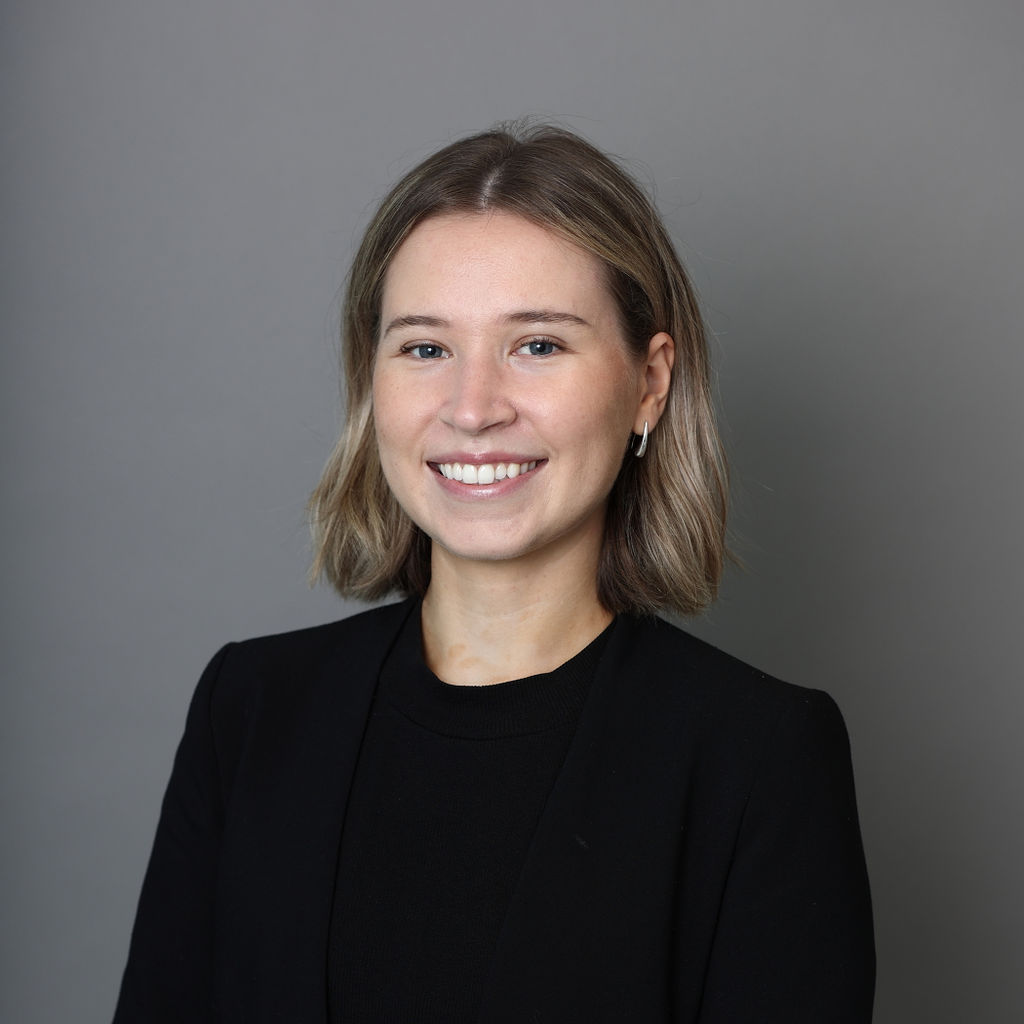
Mariya Chugay
Initiative
The Circular Construction Accelerator (CCA)
Role and Organization
Project Manager at Lighthouse
Mentor
Robyn Wark, Manager, Market Transformation, BC Hydro
About Mariya
With a background in business sustainability, Mariya has a proven track record of managing circular economy initiatives and collaborating with organizations to action on sustainability opportunities. Her experience started out in research and reporting and has since expanded to include material program management and local circular economic development, where her mandate included working with the local business community to advance circular practices. Mariya continues this pursuit through her work at Light House, where she manages various projects and initiatives that advance circular innovation within the built environment sector. She has additionally spent time contributing to the strategic direction and planning of several purpose-driven organizations. Mariya is particularly skilled in transforming complex, entangled challenges into impact-driven outcomes, and facilitating collaborative problem-solving. She approaches all her projects with the same level of curiosity and critical thinking.
On a personal front, Mariya splits her free time between her love for the outdoors and various creative pursuits, whether that be through adventuring skiing, and biking, to trying out new recipes and screen-printing a thrifted garment for her friends.
On a personal front, Mariya splits her free time between her love for the outdoors and various creative pursuits, whether that be through adventuring skiing, and biking, to trying out new recipes and screen-printing a thrifted garment for her friends.
About Initiative
Mariya is a Project Manager at Light House, a non-profit that works to advance circular economy and regenerative principles in the built environment.
Changing local government regulations, evolving carbon emissions reduction requirements, and an ongoing growing market for regenerative solutions, are driving an increased demand for sustainable building solutions across British Columbia.
The accelerator is structured to support businesses in the sector by providing tailored support, expert advice, and comprehensive resources towards advancing circular practices. With current economic uncertainties, these practices are a key opportunity for businesses to strengthen local supply chains and build local resilience.
Changing local government regulations, evolving carbon emissions reduction requirements, and an ongoing growing market for regenerative solutions, are driving an increased demand for sustainable building solutions across British Columbia.
The accelerator is structured to support businesses in the sector by providing tailored support, expert advice, and comprehensive resources towards advancing circular practices. With current economic uncertainties, these practices are a key opportunity for businesses to strengthen local supply chains and build local resilience.
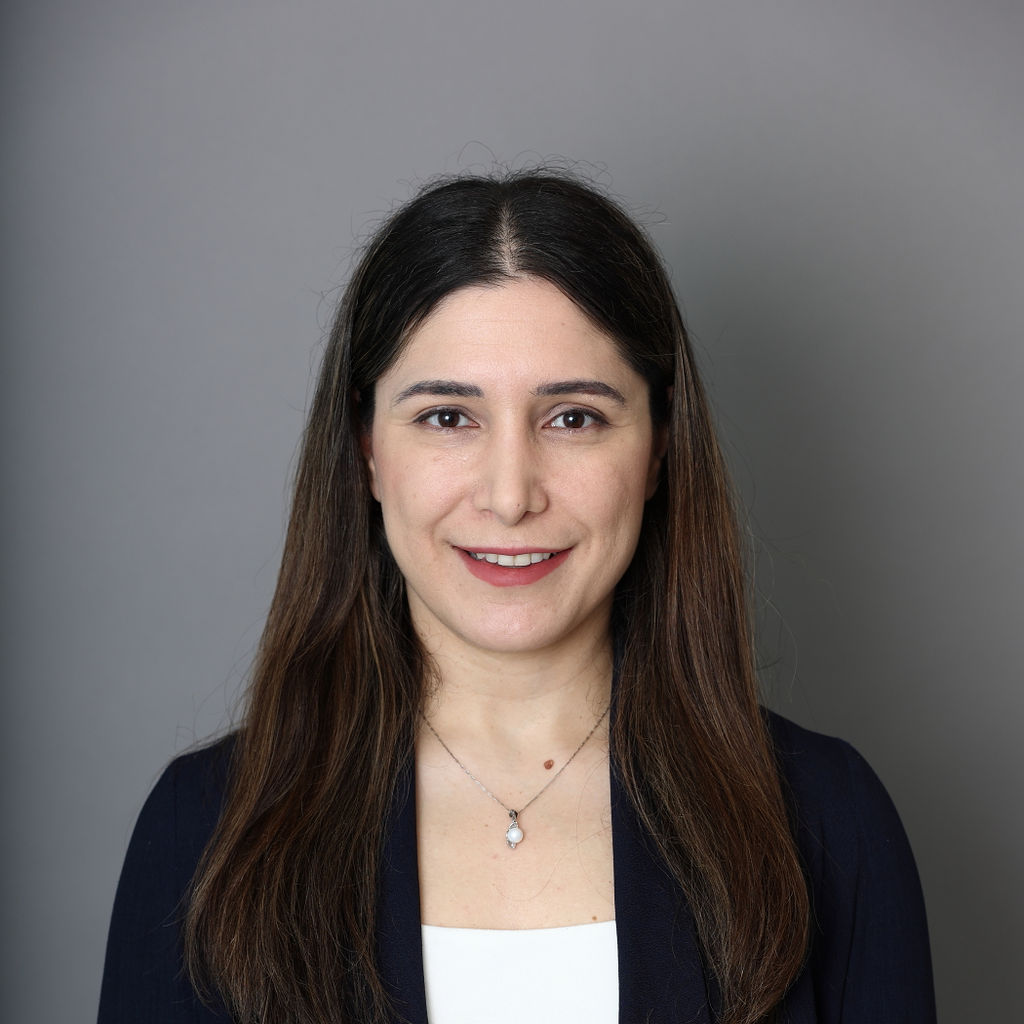
Tugce Conger
Initiative
Climate Change and Health Community Profiles
Role and Organization
Climate Change and Planetary Health Lead at Fraser Health Authority
Mentor
Allison Ashcroft, Director of Sustainability, Municipal Finance Authority of British Columbia
About Tugce
Tugce’s professional interests center on exploring individual, community, and societal vulnerabilities to climate-linked hazards. She is passionate about leveraging social, environmental, economic, and institutional tools to adapt to a changing climate and foster resilience.
Drawing on her expertise as an urban planner working with local governments and her Ph.D. in Resource Management and Environmental Studies, with a focus on climate change adaptation, she provides strategic leadership and subject matter expertise on the intricate relationship between climate change and health. Her role encompasses project management, knowledge transfer, policy development and advocacy, and the implementation of Population and Public Health's Climate Change Strategy. Through these efforts, she spearheads innovative health adaptation initiatives to build resilient communities.
Outside of work, she enjoys undertaking hands-on home improvement projects and tending to her vegetable garden. She loves taking her kids and dog on adventures through forests and mountains, and cherishes sharing joyful moments with family, friends, and neighbors.
Drawing on her expertise as an urban planner working with local governments and her Ph.D. in Resource Management and Environmental Studies, with a focus on climate change adaptation, she provides strategic leadership and subject matter expertise on the intricate relationship between climate change and health. Her role encompasses project management, knowledge transfer, policy development and advocacy, and the implementation of Population and Public Health's Climate Change Strategy. Through these efforts, she spearheads innovative health adaptation initiatives to build resilient communities.
Outside of work, she enjoys undertaking hands-on home improvement projects and tending to her vegetable garden. She loves taking her kids and dog on adventures through forests and mountains, and cherishes sharing joyful moments with family, friends, and neighbors.
About Initiative
Tugce is a Climate Change and Planetary Health Lead at Fraser Health Authority (FHA), where she advances community resilience and climate adaptation through data-driven policy, advocacy, and knowledge transfer, guided by a public health and equity lens.
FHA communities face diverse climate challenges now and in the future. Their unique populations, environments, and socio-economic characteristics result in different health impacts for each community. However, many lack access to health-linked information and resources needed to develop informed policies and decisions.
Recognizing the interconnection between health and climate change, Tugce is developing a comprehensive package of data, policy briefs, and resources for FHA communities.
This initiative aligns with FHA's Planetary Health Strategy by reinforcing the connection between planetary and community health. It also supports the Population and Public Health's Climate Adaptation Strategy through leadership, policy advocacy, empowering impacted populations, communication, mitigation, and adaptation focus areas. The project aims to reduce barriers to health-linked climate data and associated resiliency actions, empowering communities to make informed decisions and policies.
FHA communities face diverse climate challenges now and in the future. Their unique populations, environments, and socio-economic characteristics result in different health impacts for each community. However, many lack access to health-linked information and resources needed to develop informed policies and decisions.
Recognizing the interconnection between health and climate change, Tugce is developing a comprehensive package of data, policy briefs, and resources for FHA communities.
This initiative aligns with FHA's Planetary Health Strategy by reinforcing the connection between planetary and community health. It also supports the Population and Public Health's Climate Adaptation Strategy through leadership, policy advocacy, empowering impacted populations, communication, mitigation, and adaptation focus areas. The project aims to reduce barriers to health-linked climate data and associated resiliency actions, empowering communities to make informed decisions and policies.

Kaelyn Davidson
Initiative
Honouring Land and Sea Through Two-Eyed Seeing
Role and Organization
Environmental Science Student at UBC
Mentor
Details to follow
About Kaelyn
Kaelyn’s purpose is love. To share and expand love in all facets of her life, especially in environmental endeavours. The world is deserving of so much unconditional love, that not enough people give it, when it gives us everything.
Reciprocity drives relationships, especially ours with the land and sea. It is through connection, mutual respect, and care, that we can bring a new perspective and approach to climate action.
She is passionate about fostering reconciliation and sustainability in environmental science by bridging indigenous knowledge and western science. Kaelyn grew up in a small coastal community that environmental stewardship was a very key centre of, it is where she had her first formal job in the field as an Environmental Field Technician, working mainly on marine based conservation surveys and research.
As she carries out her bachelors degree in environmental science she continues to seize any opportunity to get involved and collaborate perspectives and action with like minded individuals, which is an effort than led her to this program. Kaelyn is very passionate and involved in the arts, seeing the beauty and value within everything. She enjoys painting and she is also a musician, deeply loving music as a meaningful form of communication. As an environmental science student she definitely loves to hike and explore her free time, having the best time being out in nature and discovering all of the intricacies. Above all her favourite past time is being with the people that she loves, taking every moment to experience life by their sides.
Reciprocity drives relationships, especially ours with the land and sea. It is through connection, mutual respect, and care, that we can bring a new perspective and approach to climate action.
She is passionate about fostering reconciliation and sustainability in environmental science by bridging indigenous knowledge and western science. Kaelyn grew up in a small coastal community that environmental stewardship was a very key centre of, it is where she had her first formal job in the field as an Environmental Field Technician, working mainly on marine based conservation surveys and research.
As she carries out her bachelors degree in environmental science she continues to seize any opportunity to get involved and collaborate perspectives and action with like minded individuals, which is an effort than led her to this program. Kaelyn is very passionate and involved in the arts, seeing the beauty and value within everything. She enjoys painting and she is also a musician, deeply loving music as a meaningful form of communication. As an environmental science student she definitely loves to hike and explore her free time, having the best time being out in nature and discovering all of the intricacies. Above all her favourite past time is being with the people that she loves, taking every moment to experience life by their sides.
About Initiative
Kaelyn is an environmental Science student in her 2nd year of her bachelors degree at the University of British Columbia. She is dedicated to integrating Indigenous knowledge systems, western science, and equally as important, love, when approaching sustainability and conservation. Her initiative addresses the exclusion of Indigenous ecological knowledge in environmental policies and actions, which limits holistic solutions and perpetuates environmental injustices.
She has a strong advocacy against deep-sea mining, highlighting its threats to marine life and the environment as a whole, while emphasizing the importance of indigenous ocean stewardship in this approach.
Through her education and collaborations, she works to bridge knowledge systems together by representing conservation through a biocentric lens, and to promote mindful conservation strategies rooted in respect, reciprocity, and love. By fostering a more inclusive and caring approach to environmental Science and beyond, she aims to inspire systemic change that aligns with climate action goals while protecting ecosystems and cultural heritage.
She has a strong advocacy against deep-sea mining, highlighting its threats to marine life and the environment as a whole, while emphasizing the importance of indigenous ocean stewardship in this approach.
Through her education and collaborations, she works to bridge knowledge systems together by representing conservation through a biocentric lens, and to promote mindful conservation strategies rooted in respect, reciprocity, and love. By fostering a more inclusive and caring approach to environmental Science and beyond, she aims to inspire systemic change that aligns with climate action goals while protecting ecosystems and cultural heritage.
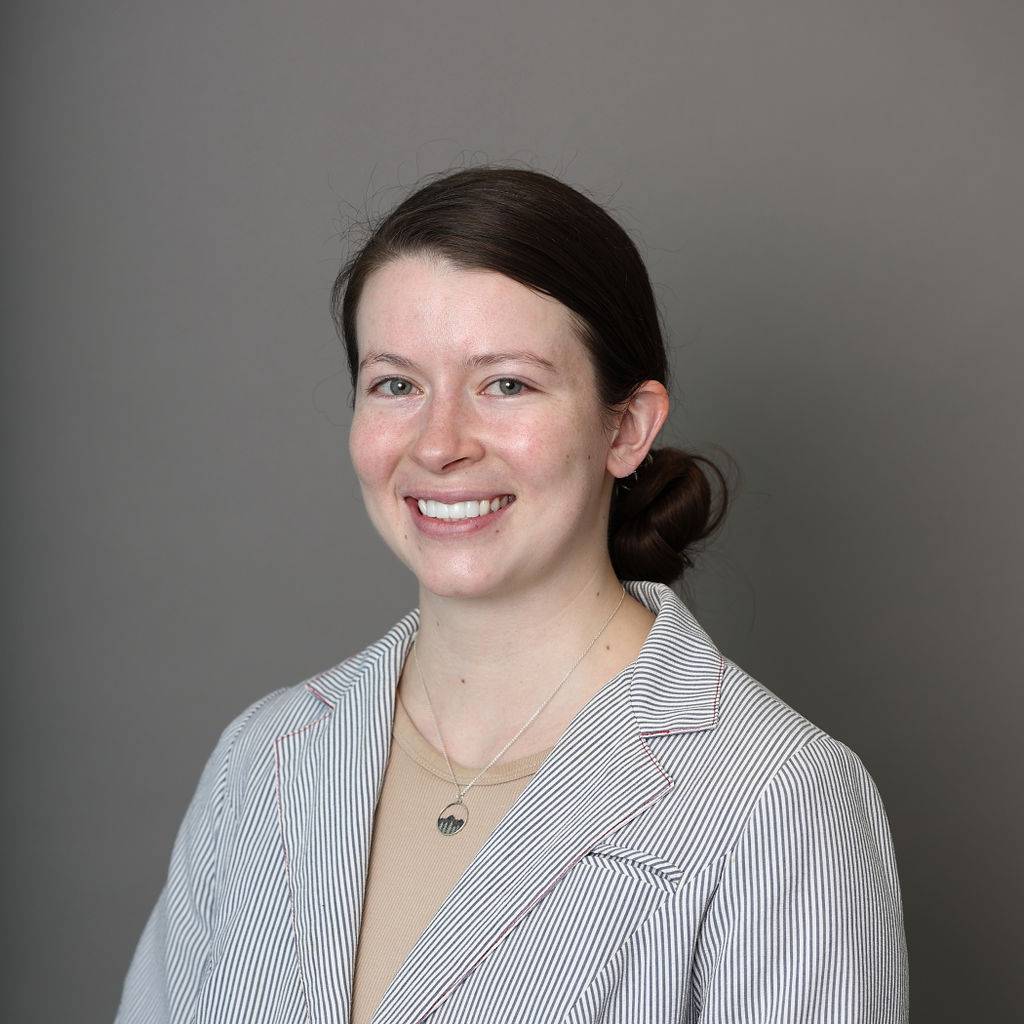
Claire Ewing
Initiative
Data tool development guide for healthy, affordable, and equitable retrofits
Role and Organization
Senior Climate Action Specialist
at City of Richmond
Mentor
Winne Tam, Director of Operations, West Coast Environmental Law
About Claire
Claire is a dedicated public servant committed to advancing equitable climate action through data science, policy development, and community engagement. With experience spanning public, private, and academic sectors, she takes an interdisciplinary approach to solving complex environmental challenges.
Her research has focused on the intersections of ecology, pollution, policy, and environmental justice, from studying mining and mercury pollution in the Peruvian Amazon to examining air pollution law enforcement in Canada. Claire now works with the City of Richmond, where she leads the development of policies and programs that support the City's 2050 Community Energy and Emissions Plan, with a focus on decarbonizing existing buildings. Previously, she worked at Metro Vancouver, advancing climate action targets for buildings, transportation, and equity.
With a strong foundation in policy analysis, environmental science, and engagement, Claire is dedicated to bridging science, policy, and community needs to create meaningful climate solutions.
Outside of work, she enjoys traveling, gardening, and exploring the outdoors.
Her research has focused on the intersections of ecology, pollution, policy, and environmental justice, from studying mining and mercury pollution in the Peruvian Amazon to examining air pollution law enforcement in Canada. Claire now works with the City of Richmond, where she leads the development of policies and programs that support the City's 2050 Community Energy and Emissions Plan, with a focus on decarbonizing existing buildings. Previously, she worked at Metro Vancouver, advancing climate action targets for buildings, transportation, and equity.
With a strong foundation in policy analysis, environmental science, and engagement, Claire is dedicated to bridging science, policy, and community needs to create meaningful climate solutions.
Outside of work, she enjoys traveling, gardening, and exploring the outdoors.
About Initiative
Claire is a Senior Climate Action Specialist with the City of Richmond, where she leads the development of policies and programs to implement the 2050 Community Energy and Emissions Plan, with a focus on decarbonizing existing buildings. Her Women4Climate initiative is to develop a data tool development guide to help organizations use free software and existing datasets to inform retrofit policies and programs, prioritizing health, affordability, and equity.
Across British Columbia, many organizations are working to decarbonize buildings in line with local climate action plans, but determining where and how to prioritize retrofits remains a challenge. Claire’s work aims to bridge this gap by helping organizations identify high-impact retrofit opportunities. Her initiative will help organizations use data to identify high-emitting buildings, aging heating systems, communities most vulnerable to extreme heat or high energy costs, and many other parameters, supporting targeted interventions for those most in need.
With experience developing these tools across government contexts, Claire is creating a practical, actionable guide for organizations looking to integrate data-informed decision-making into building decarbonization policies and programs. Her work empowers organizations to drive effective, equitable climate action, ensuring that climate policies translate into meaningful, measurable impacts for communities.
Across British Columbia, many organizations are working to decarbonize buildings in line with local climate action plans, but determining where and how to prioritize retrofits remains a challenge. Claire’s work aims to bridge this gap by helping organizations identify high-impact retrofit opportunities. Her initiative will help organizations use data to identify high-emitting buildings, aging heating systems, communities most vulnerable to extreme heat or high energy costs, and many other parameters, supporting targeted interventions for those most in need.
With experience developing these tools across government contexts, Claire is creating a practical, actionable guide for organizations looking to integrate data-informed decision-making into building decarbonization policies and programs. Her work empowers organizations to drive effective, equitable climate action, ensuring that climate policies translate into meaningful, measurable impacts for communities.
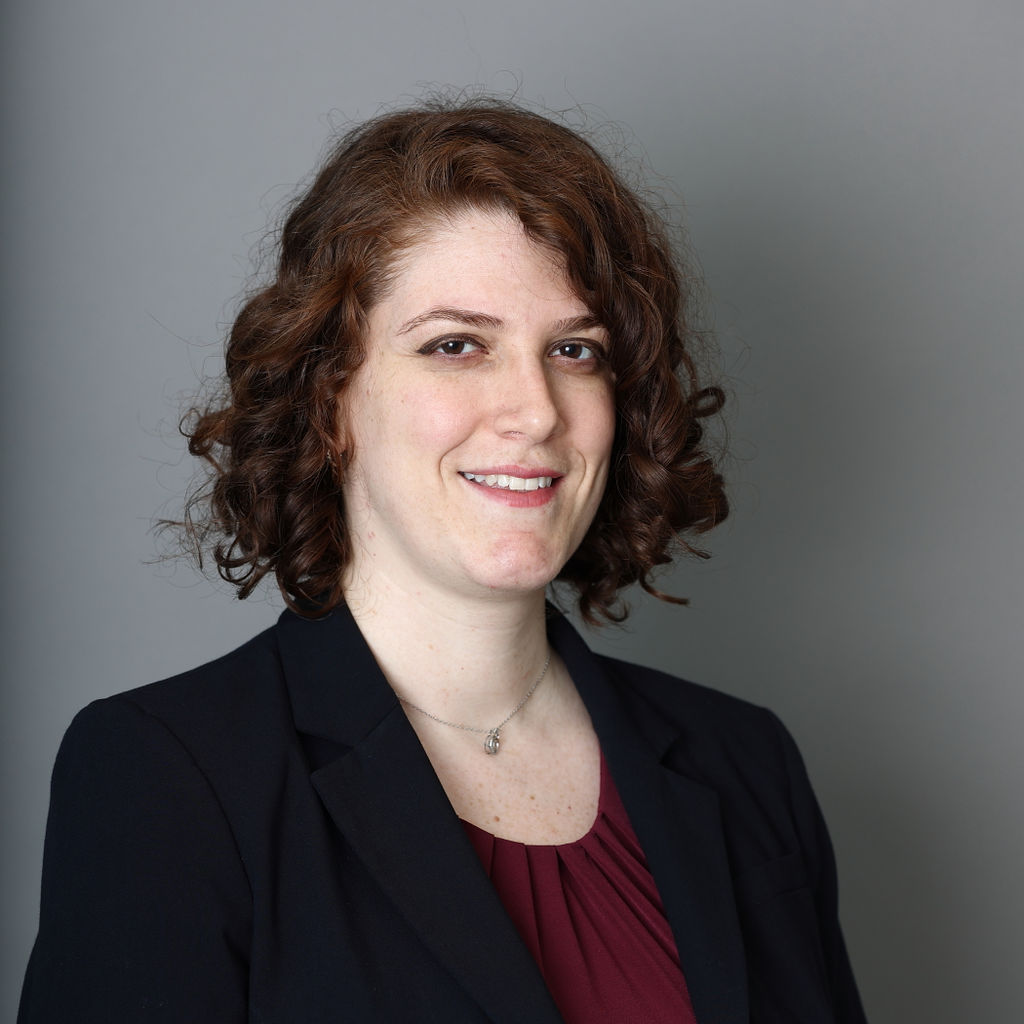
Gabriela Favaron
Initiative
Advancing Electrification of Commercial and Last-Mile Operations in BC
Role and Organization
Director of EV Infrastructure at
Seven Generation Capital Corp.
Mentor
Shauna Sylvester,
Founder and Lead Convenor,
Urban Climate Leadership, a project of MakeWay
About Gabriela
Gabriela is passionate about transforming the transportation sector through sustainable electrification, focusing on making clean mobility accessible and scalable for commercial fleets. With over 10 years of experience in renewable energy, she has worked across hydrogen, solar, and eMobility, tackling complex challenges to advance the industry. Her background in Electrical and Mechanical Engineering includes R&D product development at Eaton and Schneider Electric. As Director of EV Infrastructure at 7Gen, she leads fleet electrification initiatives across North America, guiding medium and heavy-duty operators through the transition to zero-emission transport. Gabriela has worked in Brazil, Canada, and the U.S., bringing a global perspective to clean energy deployment.
Outside of work, Gabriela is an advocate for women in STEM, actively contributing to the Women in EV network and ElectroMobility Canada. She is also an arts enthusiast, enjoying painting, music, and crochet, and loves cycling through British Columbia's breathtaking landscapes.
Outside of work, Gabriela is an advocate for women in STEM, actively contributing to the Women in EV network and ElectroMobility Canada. She is also an arts enthusiast, enjoying painting, music, and crochet, and loves cycling through British Columbia's breathtaking landscapes.
About Initiative
As Director of EV Infrastructure at 7Gen, Gabriela leads various initiatives to accelerate the adoption of electric vehicles (EVs) in commercial and last-mile fleets across BC. These projects aim to reduce carbon emissions and improve air quality by replacing diesel vehicles with electric alternatives, primarily supporting small and medium-sized enterprises (SMEs). Gabriela’s team helps fleet managers to transition to electric fleets by conducting fleet assessments, identifying operational needs, and providing tailored solutions, financial incentives, and tools to speed up EV adoption.
SMEs face challenges such as high upfront costs, infrastructure complexity, and a lack of clear transition pathways. Many operators also need more information on the benefits of electrification. Gabriela’s approach includes offering financial support, customized consulting, and collaborating closely with SMEs to ensure the best EV solutions. It aims to make the transition easier and more appealing.
These initiatives also aligns with regional climate goals by reducing Scope 3 emissions, improving air quality, and supporting Canada’s net-zero target by 2050. Ultimately, the project accelerates the decarbonization of the transportation sector and promotes sustainable practices among fleet operators.
SMEs face challenges such as high upfront costs, infrastructure complexity, and a lack of clear transition pathways. Many operators also need more information on the benefits of electrification. Gabriela’s approach includes offering financial support, customized consulting, and collaborating closely with SMEs to ensure the best EV solutions. It aims to make the transition easier and more appealing.
These initiatives also aligns with regional climate goals by reducing Scope 3 emissions, improving air quality, and supporting Canada’s net-zero target by 2050. Ultimately, the project accelerates the decarbonization of the transportation sector and promotes sustainable practices among fleet operators.
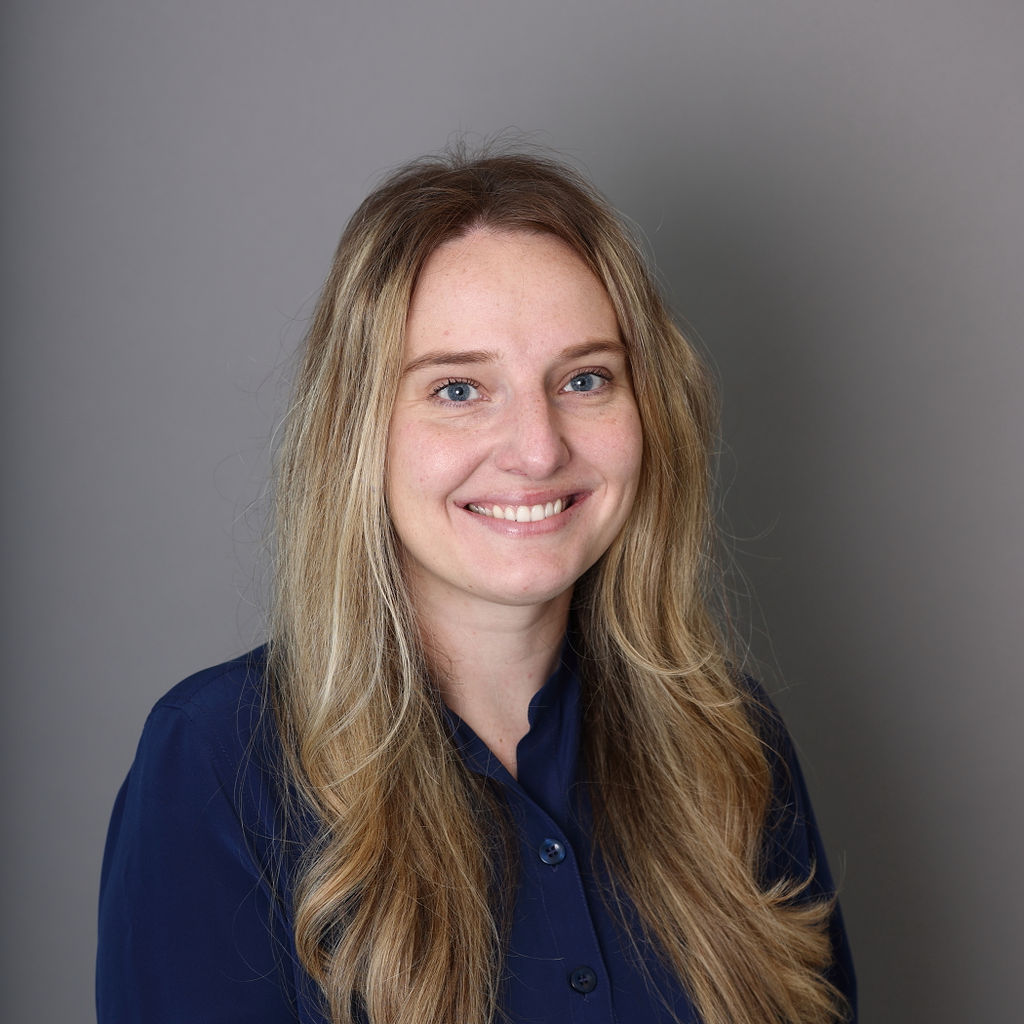
Shanel Feller
Initiative
Advancing Climate Resilience for Indigenous Housing
Role and Organization
Energy Program Advisor at
Aboriginal Housing Management Association
Mentor
Patricia Bell,
Director of Relationships and Reconciliation,
Community Energy Association
About Shanel
Shanel is a dedicated climate equity advocate with a passion for just transitions and sustainable solutions that empower communities. As an Energy Program Advisor at the Aboriginal Housing Management Association (AHMA), she works to advance climate resilience in urban Indigenous housing, ensuring that equity and Indigenous self-determination are at the heart of climate action.
With a Master of Public Policy and Global Affairs from the University of British Columbia, Shanel has spent over seven years leading and managing climate and community development projects across multiple sectors. Her expertise spans policy analysis, stakeholder engagement, and program development, with a particular focus on Indigenous rights, climate adaptation, and community-driven solutions. She has worked on municipal climate adaptation strategies, facilitated industry partnerships, and helped organizations integrate climate and reconciliation into their strategic planning. At her core, Shanel is a bridge builder, bringing together diverse partners to co-create solutions that advance climate equity. She believes in the power of collaboration to drive meaningful, long-term change.
Outside of work, Shanel enjoys reading, hiking, and traveling, finding inspiration in both nature and stories from around the world.
With a Master of Public Policy and Global Affairs from the University of British Columbia, Shanel has spent over seven years leading and managing climate and community development projects across multiple sectors. Her expertise spans policy analysis, stakeholder engagement, and program development, with a particular focus on Indigenous rights, climate adaptation, and community-driven solutions. She has worked on municipal climate adaptation strategies, facilitated industry partnerships, and helped organizations integrate climate and reconciliation into their strategic planning. At her core, Shanel is a bridge builder, bringing together diverse partners to co-create solutions that advance climate equity. She believes in the power of collaboration to drive meaningful, long-term change.
Outside of work, Shanel enjoys reading, hiking, and traveling, finding inspiration in both nature and stories from around the world.
About Initiative
As an Energy Program Advisor at the Aboriginal Housing Management Association (AHMA), Shanel Feller is leading an initiative to strengthen climate resilience in urban Indigenous housing. This work recognizes the unique vulnerabilities faced by Indigenous housing providers due to climate change and seeks to support them with culturally appropriate adaptation and mitigation strategies.
One of the key challenges in this space is the persistent funding gap, which limits the ability of housing providers to invest in sustainable retrofits and resilience measures. Capacity constraints among organizations further complicate efforts to implement climate-smart housing solutions. Additionally, the initiative must address equity concerns, ensuring Indigenous-led housing solutions reflect community needs and traditions. Finally, future-proofing these efforts against evolving climate risks is critical for long-term sustainability.
To navigate these challenges, Shanel will work closely with Indigenous Knowledge Keepers to co-develop culturally relevant resources and tools that will empower housing providers. These materials will integrate traditional knowledge with technical expertise, ensuring Indigenous communities will have the necessary guidance to adapt to climate impacts while honoring cultural values. Through collaboration and knowledge-sharing, this initiative will advance housing resilience, energy efficiency, and self-determination for urban Indigenous communities.
One of the key challenges in this space is the persistent funding gap, which limits the ability of housing providers to invest in sustainable retrofits and resilience measures. Capacity constraints among organizations further complicate efforts to implement climate-smart housing solutions. Additionally, the initiative must address equity concerns, ensuring Indigenous-led housing solutions reflect community needs and traditions. Finally, future-proofing these efforts against evolving climate risks is critical for long-term sustainability.
To navigate these challenges, Shanel will work closely with Indigenous Knowledge Keepers to co-develop culturally relevant resources and tools that will empower housing providers. These materials will integrate traditional knowledge with technical expertise, ensuring Indigenous communities will have the necessary guidance to adapt to climate impacts while honoring cultural values. Through collaboration and knowledge-sharing, this initiative will advance housing resilience, energy efficiency, and self-determination for urban Indigenous communities.
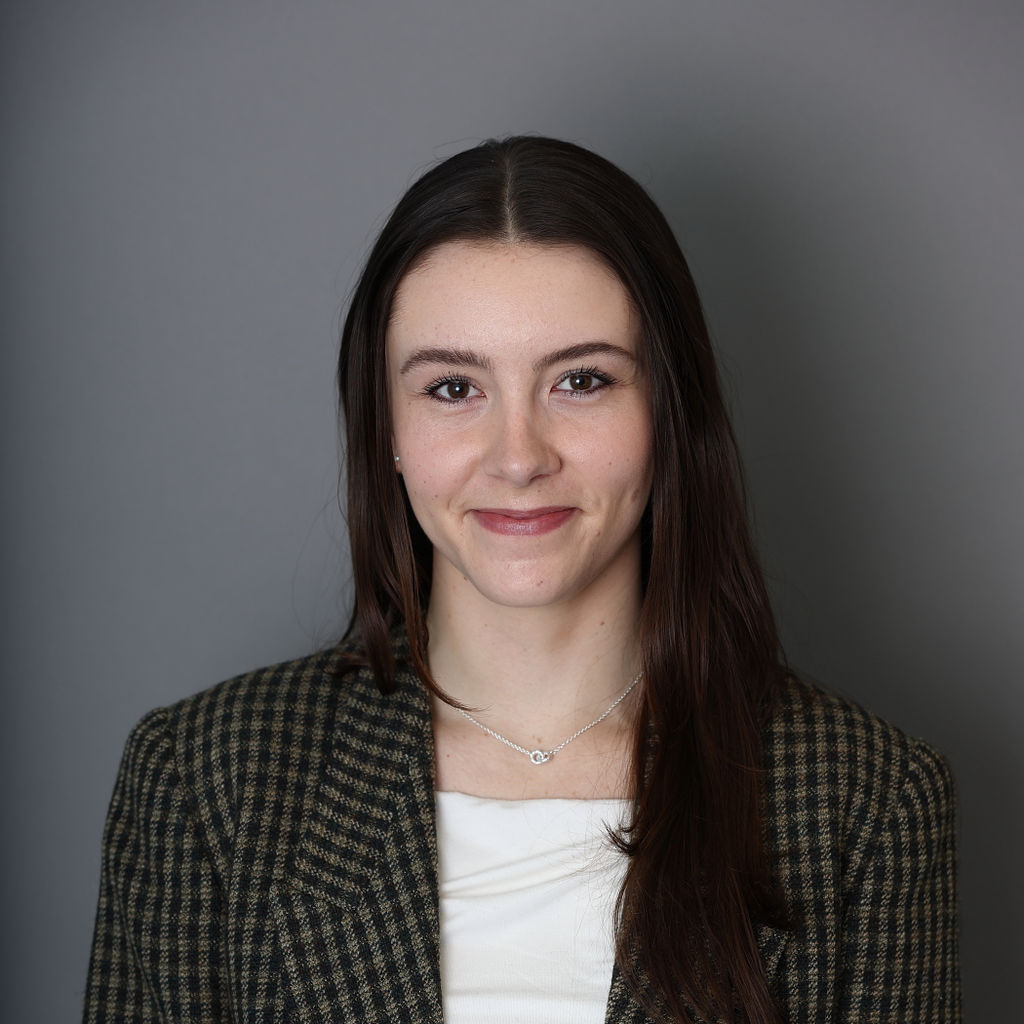
Ayden Kristmanson
Initiative
Strengthening Sustainability Communication Strategies
Role and Organization
Sustainability Specialist at
Bosa Properties
Mentor
Tanja Milosevic,
Associate Vice President - Sustainability,
Grosvenor
About Ayden
Ayden is passionate about creating impact, and as Sustainability Specialist, she leads emission reduction initiatives and corporate sustainability strategy at Bosa Properties (BPI). During her tenure at BPI, Ayden has created the company’s Baseline Emission Report, developed energy management best practices across 65 properties, led embodied carbon research internally and with local municipalities, and created BPI's first carbon credit generation program. As a University of Toronto graduate with a background in urban planning and sustainability, .
Ayden combines her expertise with a passion for climate action, leveraging a robust professional network to deliver impactful solutions. Since January 2024, Ayden has volunteered with the Urban Land Institute as the Programming Chair of Vancouver’s Net Zero Imperative (NZI), authored Vancouver's NZI Technical Assistance Panel Report, and sits on the Mentorship Committee for ULI's Young Leaders Group
Ayden combines her expertise with a passion for climate action, leveraging a robust professional network to deliver impactful solutions. Since January 2024, Ayden has volunteered with the Urban Land Institute as the Programming Chair of Vancouver’s Net Zero Imperative (NZI), authored Vancouver's NZI Technical Assistance Panel Report, and sits on the Mentorship Committee for ULI's Young Leaders Group
About Initiative
Ayden works for Bosa Properties (BPI), a family-owned and operated developer and asset manager based in Vancouver, BC, on multiple facets of sustainability for the business. With over 5.5 million in commercial space under management, over 10,000 units delivered and 13,000 more in the pipeline, Ayden's work spans both strategy and project management for sustainability initiatives in development, corporate operations, and asset management. As a vertically integrated organization with an array of expertise, proving the value of sustainability to each function of the business can be challenging.
Ayden's goal is to not only position sustainability within the organization as the right thing to do but as a smart business decision to support BPI's future growth. Ayden is working with the Executive Leadership Team at Bosa Properties to evaluate the opportunities and risks sustainability poses to the business and develop a corporate strategy for emission measurement. By participating in the Women4Climate program, Ayden hopes to work with her mentor on communication strategies for sharing and evaluating such risks and opportunities with senior leadership.
Ayden's goal is to not only position sustainability within the organization as the right thing to do but as a smart business decision to support BPI's future growth. Ayden is working with the Executive Leadership Team at Bosa Properties to evaluate the opportunities and risks sustainability poses to the business and develop a corporate strategy for emission measurement. By participating in the Women4Climate program, Ayden hopes to work with her mentor on communication strategies for sharing and evaluating such risks and opportunities with senior leadership.

Tina Lee
Initiative
Catalyzing Climate Action through Industry-Academic Partnerships
Role and Organization
Engagement Manager at Innovation Partnerships
UBC (Office of Vice-President, Research & Innovation)
Mentor
Vivian Forssman,
Associate Faculty & Program Manager - Resilience by Design Lab,
Royal Roads University
About Tina
Tina Lee is a leader in building strategic collaborations that create meaningful impact for society and drive climate action. As Engagement Manager with the Partnerships team in UBC’s Vice-President of Research & Innovation Office, she works with cross-sector groups in public and private sectors to launch initiatives that leverage collective expertise, resources, and research grants. She specializes in identifying challenges organizations face and bringing together the appropriate partners, both within and beyond UBC, to develop innovative solutions.
In her previous role, Tina led the Business Development team at UBC Faculty of Science’s Co-op Program. Her initiatives tripled the program size and significantly broadened its global reach, linking UBC’s top student talent with organizations worldwide. Her efforts facilitated meaningful internship experiences and long-term relationships that contributed to research and development, talent recruitment, and introduced students to diverse sectors and international markets.
She has extensive experience working with local, national, and global organizations on long-term initiatives that foster collaboration, further innovation, and create lasting value. She holds an undergraduate degree in Cell Biology and Genetics and a Master’s in Management with a specialization in International Business, both from UBC.
Outside of work, Tina enjoys exploring the great outdoors, adventuring to new places, spending time with animals (especially dogs), and connecting with her community through volunteering.
In her previous role, Tina led the Business Development team at UBC Faculty of Science’s Co-op Program. Her initiatives tripled the program size and significantly broadened its global reach, linking UBC’s top student talent with organizations worldwide. Her efforts facilitated meaningful internship experiences and long-term relationships that contributed to research and development, talent recruitment, and introduced students to diverse sectors and international markets.
She has extensive experience working with local, national, and global organizations on long-term initiatives that foster collaboration, further innovation, and create lasting value. She holds an undergraduate degree in Cell Biology and Genetics and a Master’s in Management with a specialization in International Business, both from UBC.
Outside of work, Tina enjoys exploring the great outdoors, adventuring to new places, spending time with animals (especially dogs), and connecting with her community through volunteering.
About Initiative
As an Engagement Manager with the Partnerships team in UBC’s Vice-President of Research and Innovation Office, Tina leads initiatives that drive innovative climate solutions by connecting climate leaders across multiple sectors with UBC’s research expertise, living lab infrastructure, and government funding opportunities. The partners she regularly collaborates with include small and medium enterprises, nonprofit organizations, academic institutions, government agencies, policymakers, and multinational corporations.
Recognizing that no single entity can tackle climate action alone, Tina's work is driven by the belief that addressing climate opportunities requires diverse and cross-sector collaboration. She takes a strategic approach to collaborations, beginning with a holistic understanding of the challenges faced by potential partners and identifying the most impactful ways to align them with the appropriate expertise and resources. Her ability to work across local, national, and international landscapes, combined with her deep knowledge of UBC’s resources, empowers her to support climate leaders in advancing sustainable solutions.
Recognizing that no single entity can tackle climate action alone, Tina's work is driven by the belief that addressing climate opportunities requires diverse and cross-sector collaboration. She takes a strategic approach to collaborations, beginning with a holistic understanding of the challenges faced by potential partners and identifying the most impactful ways to align them with the appropriate expertise and resources. Her ability to work across local, national, and international landscapes, combined with her deep knowledge of UBC’s resources, empowers her to support climate leaders in advancing sustainable solutions.
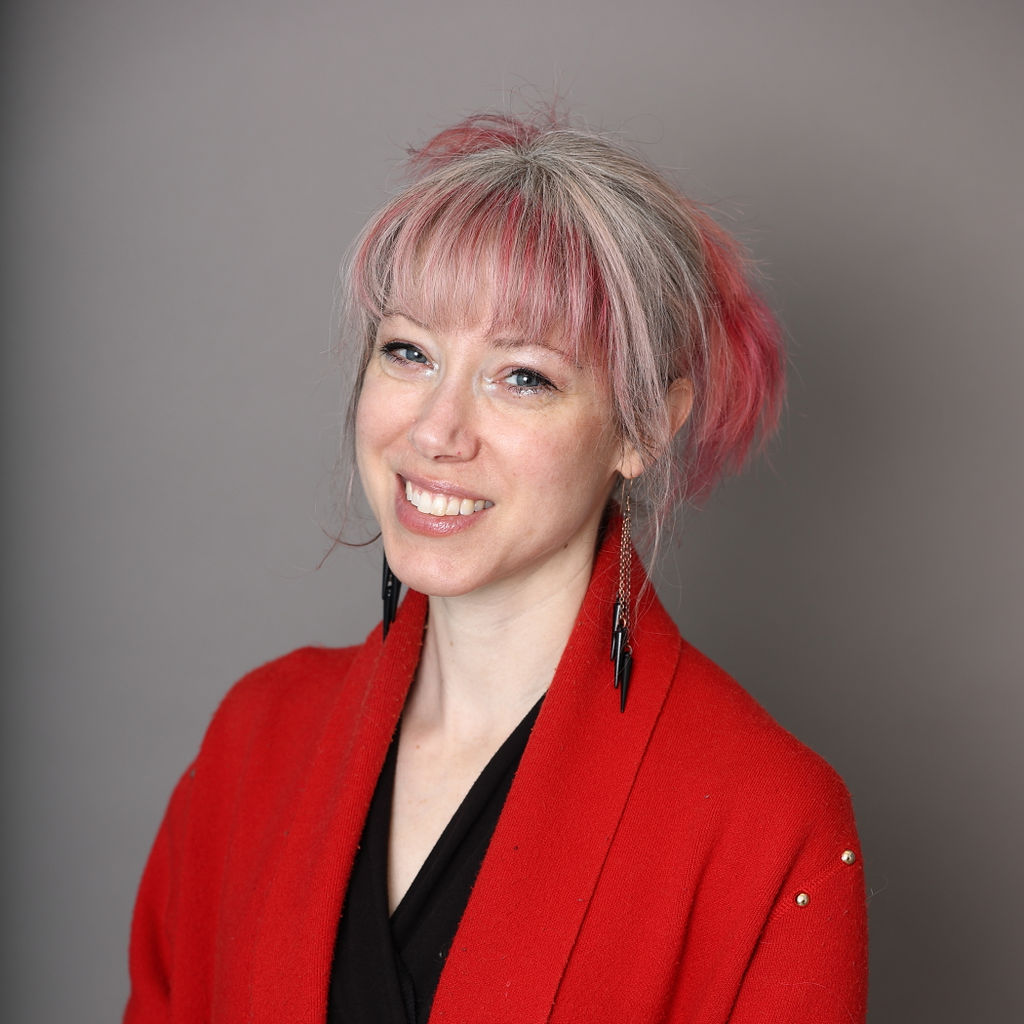
Amy Lubik
Initiative
Integration of health and climate into community resilience
Role and Organization
Climate Change and Planetary Health Lead, Population Public
Health at
Fraser Health Authority
Mentor
Rita Farkas,
Sr. Engagement Specialist - Climate,
Metro Vancouver
About Amy
After transitioning into public health from cancer research almost 10 years ago, Amy has focused her work on environmental health and climate justice. Her work at the BCCDC taught her about equipping local governments to prepare for extreme heat, as well as the important role of city planning in mental health and social connectedness. Her background in advocacy with the Canadian Association of Physicians for the Environment and the Public Health Association of BC has engrained a passion for bettering society through advocacy and knowledge mobilization across sectors. She brings this lens to her work at Fraser Health Authority, where she has focused on the health impacts current and emerging climate hazards (heat, smoke, flooding, drought).
Her favourite part of this work has been forming partnerships and avenues for multi-directional communication with organizations that service equity-deserving groups, such as unhoused neighbours,
elders and children, newcomers to Canda, and Indigenous community members. Libraries and primary care organizations have been an exciting partnership developments, as trusted avenues for reaching those benefit from knowledge sharing.
In her downtime, Amy loves to be out in nature and is currently learning, somewhat unsuccessfully, to become a birder. When she is at home she loves to be reading or preserving local foods (supervised by her giant fluffy cat, Orange George).
elders and children, newcomers to Canda, and Indigenous community members. Libraries and primary care organizations have been an exciting partnership developments, as trusted avenues for reaching those benefit from knowledge sharing.
In her downtime, Amy loves to be out in nature and is currently learning, somewhat unsuccessfully, to become a birder. When she is at home she loves to be reading or preserving local foods (supervised by her giant fluffy cat, Orange George).
About Initiative
Dr. Amy Lubik works as a Climate Change and Planetary Health Lead at Fraser Health, where she supports research, knowledge mobilization and policy advocacy to help partners servicing vulnerable community members identify and fill gaps in community resilience.
Partners face challenges in identifying and prioritizing climate resilience policies and multi-solving opportunities (such as in co-benefits of tree canopy for cooling, mental health, and social cohesion).
Amy’s team gathers feedback from on-the-ground partners, including health authority staff and those that serve highly impacted community members, to understand needs/ barriers. As climate adaptation requires an all-of society approach, it is critical to tailor resources that will be most impactful for current partners, while identifying and connecting to new players for maximum collective effort.
The team’s goal is to weave a health equity lens through our systems in order to influence government policy-making and non-profit programs towards more resilient communities.
Partners face challenges in identifying and prioritizing climate resilience policies and multi-solving opportunities (such as in co-benefits of tree canopy for cooling, mental health, and social cohesion).
Amy’s team gathers feedback from on-the-ground partners, including health authority staff and those that serve highly impacted community members, to understand needs/ barriers. As climate adaptation requires an all-of society approach, it is critical to tailor resources that will be most impactful for current partners, while identifying and connecting to new players for maximum collective effort.
The team’s goal is to weave a health equity lens through our systems in order to influence government policy-making and non-profit programs towards more resilient communities.

Honey Mathew
Initiative
Sustainable Packaging from Agricultural Waste
Role and Organization
Research Assistant at
Kwantlen Polytechnic University
Mentor
Details to follow
About Honey
Honey Mathew is a passionate sustainability advocate, researcher, and social entrepreneur committed to addressing environmental challenges through innovative solutions. Her journey in sustainability began when she witnessed farmers near her home burning straw after harvest due to the lack of proper waste management solutions. This early experience ignited her desire to find sustainable alternatives and create community-driven climate solutions.
Her commitment to environmental action began early. In 9th grade, she led a Save Water Campaign, forming a student group named For-Harmony—the same name she now uses for her social business venture. To her, sustainability is about harmonizing business and environmental stewardship, much like a melody in music. Honey, a singer and composer, blends her creative passion with her professional ambition, advocating for sustainability through public speaking and storytelling.
Currently, Honey serves as a Research Assistant at Kwantlen Polytechnic University’s Office of Sustainability, where she contributes to climate strategy development, SDG mapping, and decarbonization research. She also founded and leads the KPU Sustainability Club, creating an active platform for student-driven climate action. Selected for the Women4Climate program, she is eager to scale her initiative of creating sustainable packaging from farm waste, contributing to circular economy solutions, and fostering climate resilience.
Her commitment to environmental action began early. In 9th grade, she led a Save Water Campaign, forming a student group named For-Harmony—the same name she now uses for her social business venture. To her, sustainability is about harmonizing business and environmental stewardship, much like a melody in music. Honey, a singer and composer, blends her creative passion with her professional ambition, advocating for sustainability through public speaking and storytelling.
Currently, Honey serves as a Research Assistant at Kwantlen Polytechnic University’s Office of Sustainability, where she contributes to climate strategy development, SDG mapping, and decarbonization research. She also founded and leads the KPU Sustainability Club, creating an active platform for student-driven climate action. Selected for the Women4Climate program, she is eager to scale her initiative of creating sustainable packaging from farm waste, contributing to circular economy solutions, and fostering climate resilience.
About Initiative
Honey Mathew is spearheading an initiative to convert agricultural waste, specifically farm residues, into sustainable packaging materials. This project aims to address two pressing environmental challenges: crop waste management and plastic pollution. Currently, large quantities of agricultural by-products go unused or are burned, contributing to air pollution and carbon emissions. Simultaneously, the packaging industry heavily relies on single-use plastics, exacerbating waste problems globally.
The aim is to reach out to BC farmers and help them tackle their waste problems while exploring options to repurpose agricultural waste for sustainable packaging. While burning is not a major issue in BC, it remains a significant problem globally, presenting a carbon offset opportunity. Honey’s team envisions scaling this initiative to developing and least-developed nations to prevent pollution and create circular economy solutions. Metro Vancouver should become a hub for climate innovation, facilitating sustainable waste management and business models that can be replicated worldwide.
The aim is to reach out to BC farmers and help them tackle their waste problems while exploring options to repurpose agricultural waste for sustainable packaging. While burning is not a major issue in BC, it remains a significant problem globally, presenting a carbon offset opportunity. Honey’s team envisions scaling this initiative to developing and least-developed nations to prevent pollution and create circular economy solutions. Metro Vancouver should become a hub for climate innovation, facilitating sustainable waste management and business models that can be replicated worldwide.
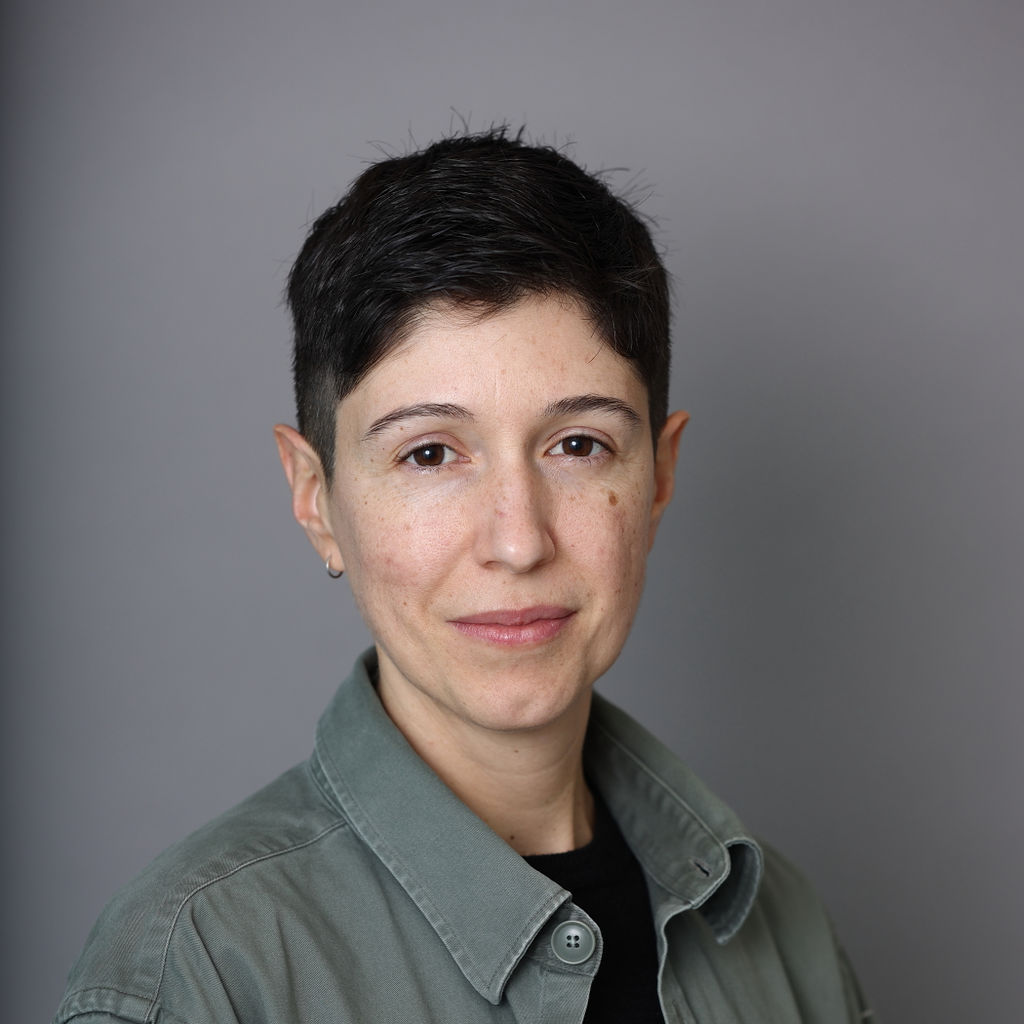
Alicia Medina
Initiative
Financing Deep Energy Retrofits
Role and Organization
Director, Real Estate Investments at
Sacha Investments
Mentor
Magdalena Szpala, Director, Sustainability & Resilience, BC Housing
About Alicia
Alicia Medina is a multidisciplinary professional with over 13 years of experience spanning impact investment, social purpose real estate, architecture, and entrepreneurship. As Director of Real Estate Investment at Sacha Investments, she leverages her expertise to advance projects that balance financial returns with social and environmental impact. Previously, Alicia managed the Affordable Community Housing Program at Vancity Community Foundation, overseeing funding deployment for affordable housing projects in Metro Vancouver. With a background in architecture and development consulting, she brings a unique technical perspective, strong project management skills, and a deep commitment to sustainability and community resilience.
About Initiative
At Sacha, we are developing financial strategies that enable housing providers to implement energy efficiency measures and electrification upgrades without passing costs onto tenants. By collaborating with non-profit housing providers, policymakers, municipal and provincial climate programs, and funders, we aim to create a scalable, integrated approach that reduces operational emissions, enhances building performance, and ensures housing stability for vulnerable communities.
This initiative is directly aligned with Metro Vancouver’s climate action policies, the CleanBC Roadmap to 2030, Canada’s 2030 Emissions Reduction Plan, and Vancouver’s Climate Emergency Action Plan—each of which prioritizes reducing building-related emissions and fostering climate-resilient communities..
Last year, Sacha Investments provided $22.4 million in financing to support six acquisitions through the Rental Protection Fund. This helped five non-profit organizations secure 12 buildings, preserving 219 homes by transferring them from private ownership into community housing models committed to long-term affordability. Our goal for the coming year is to deepen our impact by integrating deep energy retrofits into these acquisitions—leveraging our low-cost, flexible financing alongside government funding sources to transform older housing stock into highly efficient, low-carbon buildings. Our vision is to reach net-zero carbon by electrifying energy sources and increasing the energy performance of aging affordable housing.
This initiative is directly aligned with Metro Vancouver’s climate action policies, the CleanBC Roadmap to 2030, Canada’s 2030 Emissions Reduction Plan, and Vancouver’s Climate Emergency Action Plan—each of which prioritizes reducing building-related emissions and fostering climate-resilient communities..
Last year, Sacha Investments provided $22.4 million in financing to support six acquisitions through the Rental Protection Fund. This helped five non-profit organizations secure 12 buildings, preserving 219 homes by transferring them from private ownership into community housing models committed to long-term affordability. Our goal for the coming year is to deepen our impact by integrating deep energy retrofits into these acquisitions—leveraging our low-cost, flexible financing alongside government funding sources to transform older housing stock into highly efficient, low-carbon buildings. Our vision is to reach net-zero carbon by electrifying energy sources and increasing the energy performance of aging affordable housing.
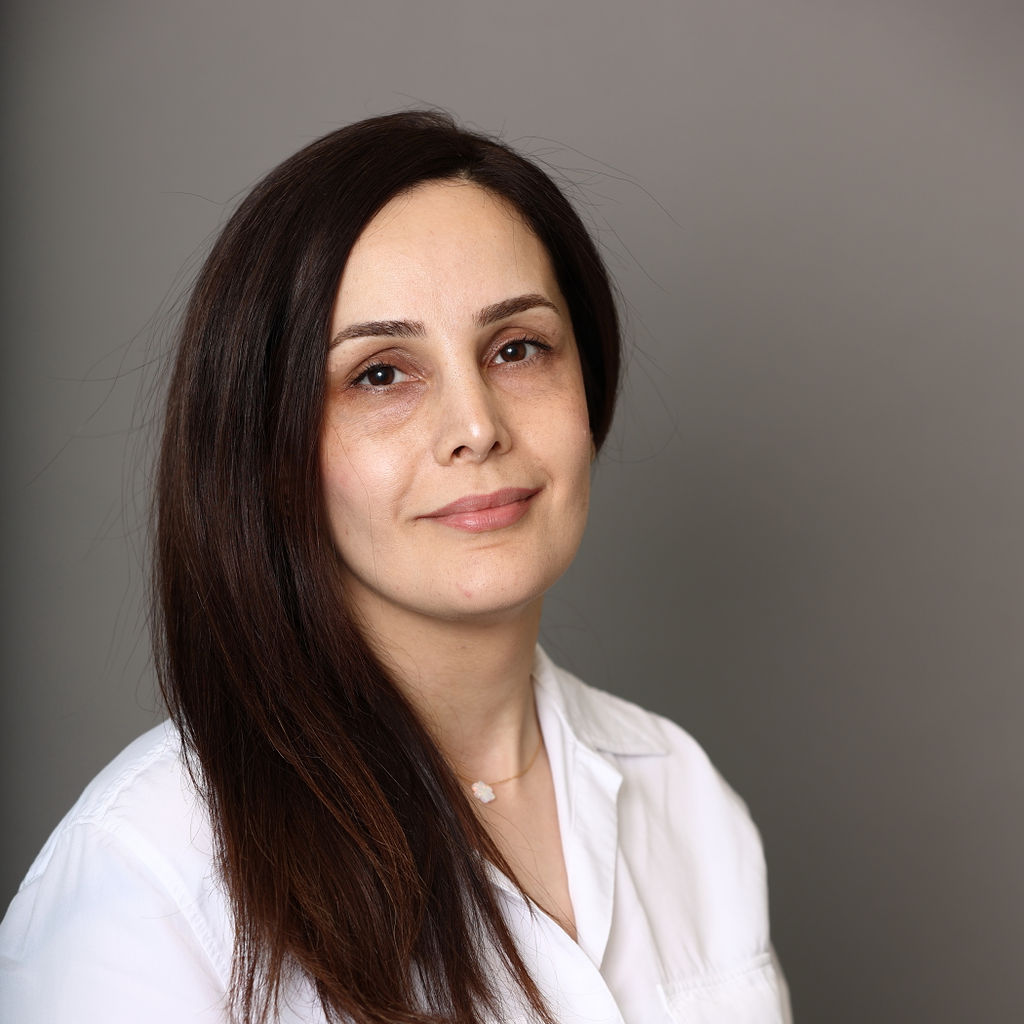
Parisa Mohammadi
Initiative
Advocacy on Climate Resilience and Decarbonizing Buildings
Role and Organization
Energy Manager at
University of the Fraser Valley
Mentor
Erin Desautels,
Senior Energy & Climate Action Manager,
City of Abbotsford
About Parisa
Parisa is deeply passionate about driving sustainability and building climate resilience. Her motivation comes from the urgent need to tackle climate change through meaningful actions that reduce carbon footprints, boost energy efficiency, and create systems that will benefit future generations. She’s especially focused on using energy solutions to meet both sustainability and climate goals, which is what fuels her work in the clean energy and climate action field.
With a background in Project Management and Clean Energy Engineering, Parisa has over a decade of experience in the energy sector. She currently serves as the Energy Manager at the University of the Fraser Valley (UFV), where she leads efforts in strategic energy management, decarbonization, and building resilience across the campus.
Outside of work, Parisa enjoys experimenting with new recipes, diving into thought-provoking podcasts, and spending quality time with her family. These activities help her stay grounded, inspired, and continuously motivated to contribute to a sustainable future.
With a background in Project Management and Clean Energy Engineering, Parisa has over a decade of experience in the energy sector. She currently serves as the Energy Manager at the University of the Fraser Valley (UFV), where she leads efforts in strategic energy management, decarbonization, and building resilience across the campus.
Outside of work, Parisa enjoys experimenting with new recipes, diving into thought-provoking podcasts, and spending quality time with her family. These activities help her stay grounded, inspired, and continuously motivated to contribute to a sustainable future.
About Initiative
Parisa is the Energy Manager at the University of the Fraser Valley (UFV), where she leads strategic energy management, decarbonization, and resilience-building initiatives across the campus. Currently, she is overseeing the development of Energy and Climate Resilience Plan. This project aims to strengthen the university's sustainability efforts and adapt its operations to climate change impacts. The plan’s primary objective is to identify actionable strategies that will reduce carbon footprint, enhance energy efficiency, and build climate resilience, benefiting students, staff, and the broader community by aligning with the university’s climate action and sustainability targets.
A key challenge in the initiative is balancing the immediate need for energy efficiency improvements with the long-term goal of climate resilience. Also, addressing the diverse needs of various stakeholders and ensuring the initiative aligns with the university's sustainability objectives adds complexity.
To address these challenges, her team is conducting detailed energy audits, engaging with stakeholders across campus, and ensuring alignment with local and regional climate action policies. They are exploring renewable energy options and optimizing energy management systems to enhance the campus’s resilience. This approach supports broader decarbonization goals while contributing to regional climate action targets.
A key challenge in the initiative is balancing the immediate need for energy efficiency improvements with the long-term goal of climate resilience. Also, addressing the diverse needs of various stakeholders and ensuring the initiative aligns with the university's sustainability objectives adds complexity.
To address these challenges, her team is conducting detailed energy audits, engaging with stakeholders across campus, and ensuring alignment with local and regional climate action policies. They are exploring renewable energy options and optimizing energy management systems to enhance the campus’s resilience. This approach supports broader decarbonization goals while contributing to regional climate action targets.

Aneri Bipin Patel
Initiative
Beauty with a Purpose: Sustainable Salons
Role and Organization
Front Desk Representative/ Assistant Manager at
Vcut Beauty Bar
Mentor
Jennifer Tan, Climate Action Manager, Social Purpose Office, Coast Capital Savings
About Aneri
Aneri Patel is passionate about developing sustainable solutions that drive real change in business operations. With a deep commitment to environmental sustainability, she is particularly focused on waste management, circular economy solutions, and sustainable resource utilization. Her motivation stems from a desire to bridge the gap between policy and practical implementation, ensuring that businesses—especially in high-impact industries like beauty and personal care—can transition toward more sustainable practices without compromising efficiency or profitability.
With over four years of experience in environmental engineering, Aneri has worked in diverse roles, including sales engineer, project coordinator, and freelance research writer. She has contributed to multiple projects in sustainability consulting, climate policy analysis, and stakeholder engagement. As a published researcher in the e-waste management sector, she has explored innovative approaches to urban mining, resource recovery, and circular economy strategies. Currently, she is pursuing a Graduate Diploma in Green Business Management and Sustainability at Kwantlen Polytechnic University, where she aims to integrate her engineering expertise with business acumen to develop sustainable business solutions.
Beyond her professional work, Aneri enjoys exploring nature, engaging in climate advocacy initiatives, and continuously expanding her knowledge of sustainability trends. She is dedicated to making sustainability accessible, actionable, and integral to business models worldwide.
With over four years of experience in environmental engineering, Aneri has worked in diverse roles, including sales engineer, project coordinator, and freelance research writer. She has contributed to multiple projects in sustainability consulting, climate policy analysis, and stakeholder engagement. As a published researcher in the e-waste management sector, she has explored innovative approaches to urban mining, resource recovery, and circular economy strategies. Currently, she is pursuing a Graduate Diploma in Green Business Management and Sustainability at Kwantlen Polytechnic University, where she aims to integrate her engineering expertise with business acumen to develop sustainable business solutions.
Beyond her professional work, Aneri enjoys exploring nature, engaging in climate advocacy initiatives, and continuously expanding her knowledge of sustainability trends. She is dedicated to making sustainability accessible, actionable, and integral to business models worldwide.
About Initiative
Aneri Patel is leading an initiative to help salons transition to sustainable business operations by reducing their carbon footprint through resource efficiency, waste management, and eco-friendly practices. This project aims to equip salon owners and professionals with practical solutions to minimize environmental impact while maintaining business viability. Vcut Beauty Bar is the first salon to receive support through this initiative, where Aneri will be recommending changes to improve current practices and enhance operational efficiency.
.
One of the key challenges salons face is excessive water and energy consumption, along with high waste generation from beauty products and packaging. Many businesses struggle to implement sustainable practices due to a lack of awareness, limited access to green alternatives, and financial constraints. .
To address these issues, Aneri’s initiative takes a hands-on approach by analyzing existing operations at Vcut Beauty Bar and identifying opportunities for sustainable improvements. She will propose targeted changes in water and energy usage, introduce eco-friendly product alternatives, and establish an effective beauty waste recycling system. Additionally, she will provide training and guidance to salon professionals on integrating sustainable practices into their daily routines. .
By bridging the gap between environmental responsibility and business efficiency, this initiative empowers salon professionals to embrace greener practices, reducing their overall environmental impact. Through this effort, Aneri envisions a future where sustainability becomes a core principle of the beauty industry, contributing to broader climate action goals
One of the key challenges salons face is excessive water and energy consumption, along with high waste generation from beauty products and packaging. Many businesses struggle to implement sustainable practices due to a lack of awareness, limited access to green alternatives, and financial constraints. .
To address these issues, Aneri’s initiative takes a hands-on approach by analyzing existing operations at Vcut Beauty Bar and identifying opportunities for sustainable improvements. She will propose targeted changes in water and energy usage, introduce eco-friendly product alternatives, and establish an effective beauty waste recycling system. Additionally, she will provide training and guidance to salon professionals on integrating sustainable practices into their daily routines. .
By bridging the gap between environmental responsibility and business efficiency, this initiative empowers salon professionals to embrace greener practices, reducing their overall environmental impact. Through this effort, Aneri envisions a future where sustainability becomes a core principle of the beauty industry, contributing to broader climate action goals
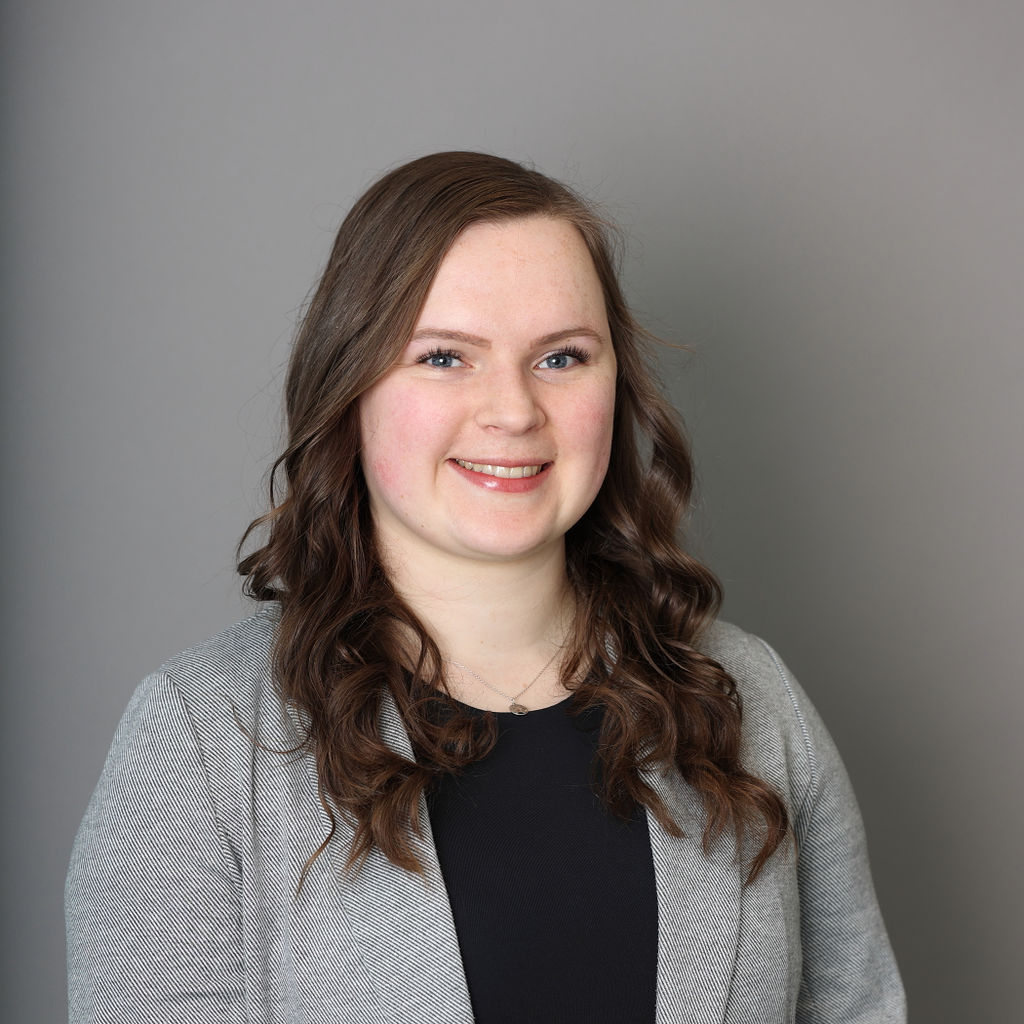
Taryn Pedersson
Initiative
Expanding the Knowledge of Natural Asset Management at Metro Vancouver
Role and Organization
Assistant Project Engineer at
Metro Vancouver
Mentor
Gillian Aubie Vines,
Principal,
Pinna Sustainability
About Taryn
Taryn is passionate about climate resilience, building connections, and collaborating with others who want to make impactful changes for climate adaptation. With a Bachelor of Applied Science in Environmental Engineering, she is an Engineer-in-Training who has explored climate adaptation, policy, conservation, and asset management in the public sector. Her specific interest lies in natural asset management—integrating nature-based solutions into local government planning to enhance community resilience.
Growing up with a deep appreciation for nature, Taryn is driven by the idea that ecosystems are valuable infrastructure. She believes that by working with nature rather than against it, communities can build a more sustainable and climate-adaptive future. She believes that by valuing ecosystems as critical infrastructure, communities can create more sustainable and adaptive environments that benefit both people and nature.
Outside of work, Taryn enjoys hiking in the backcountry, creating new recipes in the kitchen, and getting her hands dirty through gardening and pottery.
Growing up with a deep appreciation for nature, Taryn is driven by the idea that ecosystems are valuable infrastructure. She believes that by working with nature rather than against it, communities can build a more sustainable and climate-adaptive future. She believes that by valuing ecosystems as critical infrastructure, communities can create more sustainable and adaptive environments that benefit both people and nature.
Outside of work, Taryn enjoys hiking in the backcountry, creating new recipes in the kitchen, and getting her hands dirty through gardening and pottery.
About Initiative
Taryn works as an Assistant Project Engineer for Metro Vancouver, where she is a passionate advocate for climate resilience, with a strong focus on natural asset management and nature-based solutions. Natural assets are commonly forgotten or undervalued for the ecosystem services they provide and are typically not considered in systems and project planning. Taryn’s goal is to collaborate with multiple disciplines within her organization to increase awareness and understanding of the ecological significance natural assets have.
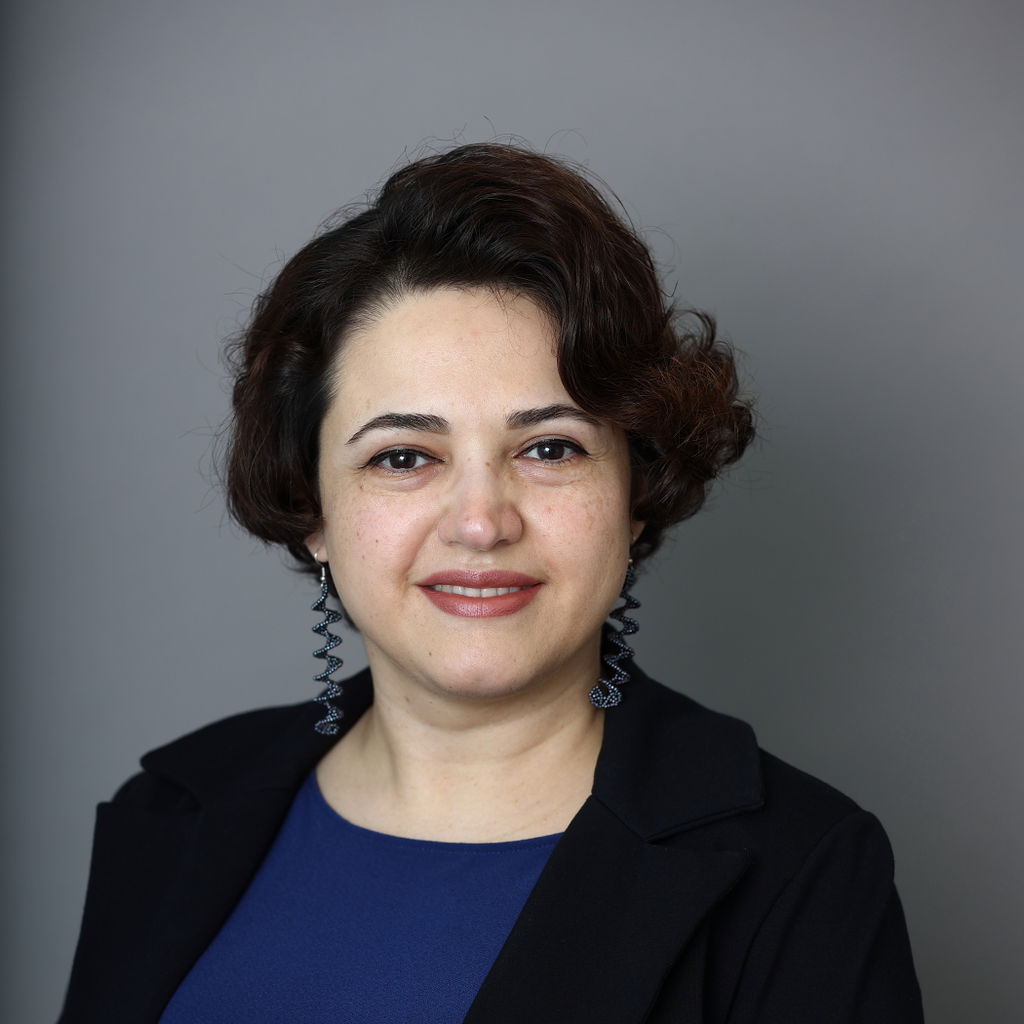
Zhila Pirmoradi
Initiative
Leading by Example: Corporate Climate & Energy Management
Role and Organization
Senior Project Engineer at
Metro Vancouver
Mentor
Charlene Ponto,
Sustainability Lead,
Vancouver Fraser Port Authority
About Zhila
I am driven by a passion to create meaningful, lasting impact by helping organizations achieve excellence in energy efficiency, sustainability, and process improvement. With a background in Industrial Engineering, my work focuses on strategy, stakeholder engagement, and climate resilience to guide organizations toward a low-carbon future. In my current role, I lead the development of a Corporate Climate and Energy Management System (CCEMS) aligned with ISO 50001 standards. Upcoming initiatives include a Green Procurement Guide, a Climate Risk Management Framework, and the sustainment of a Sustainable Infrastructure & Buildings Policy.
As an adjunct faculty, I teach Project Management, Risk Management, and Operations Management at business schools, sharing real-world examples and fostering a mindset of continuous improvement in my students. Beyond work, I am passionate about community building and sharing best practices. I have held leadership roles such as Director of Immigrating Women in Science at SCWIST and Chair of the Partnerships Committee at ASQ Vancouver. I enjoy collaborating with inspiring professionals, continuously growing my leadership skills. In my free time, I love hiking, playing badminton, and helping newcomers to Canada navigate their transition into the job market.
As an adjunct faculty, I teach Project Management, Risk Management, and Operations Management at business schools, sharing real-world examples and fostering a mindset of continuous improvement in my students. Beyond work, I am passionate about community building and sharing best practices. I have held leadership roles such as Director of Immigrating Women in Science at SCWIST and Chair of the Partnerships Committee at ASQ Vancouver. I enjoy collaborating with inspiring professionals, continuously growing my leadership skills. In my free time, I love hiking, playing badminton, and helping newcomers to Canada navigate their transition into the job market.
About Initiative
Zhila is leading the development and implementation of Metro Vancouver's Corporate Climate and Energy Management System (CCEMS). This initiative formalizes the organization’s commitment to carbon neutrality by 2050 by defining energy and emissions boundaries and targets, while supporting the development of action plans to enhance energy efficiency and climate resilience across the departments.
The primary challenge this initiative addresses is the integration of emissions reduction and energy management efforts into a cohesive, scalable framework. This will guide Metro Vancouver on its journey toward achieving climate goals while ensuring long-term sustainability.
To tackle this, Zhila's team is taking a collaborative, data-driven approach. The CCEMS will align with ISO 50001 standards and include energy performance tracking, governance structures, and action plans to achieve emissions reductions. Focusing on low-carbon utility infrastructure, industrial renewable energy, and climate adaptation, this transparent system will promote accountability, enhance decision-making, and cultivate a culture of sustainability, contributing directly to the region’s 2050 Climate Action Strategic Roadmap.
Environmental benefits include significant GHG emissions reductions and improved energy efficiency, while economic advantages cover resource efficiency and green procurement. This initiative also serves as a model for other large utility infrastructure authorities looking to scale their climate action efforts.
The primary challenge this initiative addresses is the integration of emissions reduction and energy management efforts into a cohesive, scalable framework. This will guide Metro Vancouver on its journey toward achieving climate goals while ensuring long-term sustainability.
To tackle this, Zhila's team is taking a collaborative, data-driven approach. The CCEMS will align with ISO 50001 standards and include energy performance tracking, governance structures, and action plans to achieve emissions reductions. Focusing on low-carbon utility infrastructure, industrial renewable energy, and climate adaptation, this transparent system will promote accountability, enhance decision-making, and cultivate a culture of sustainability, contributing directly to the region’s 2050 Climate Action Strategic Roadmap.
Environmental benefits include significant GHG emissions reductions and improved energy efficiency, while economic advantages cover resource efficiency and green procurement. This initiative also serves as a model for other large utility infrastructure authorities looking to scale their climate action efforts.
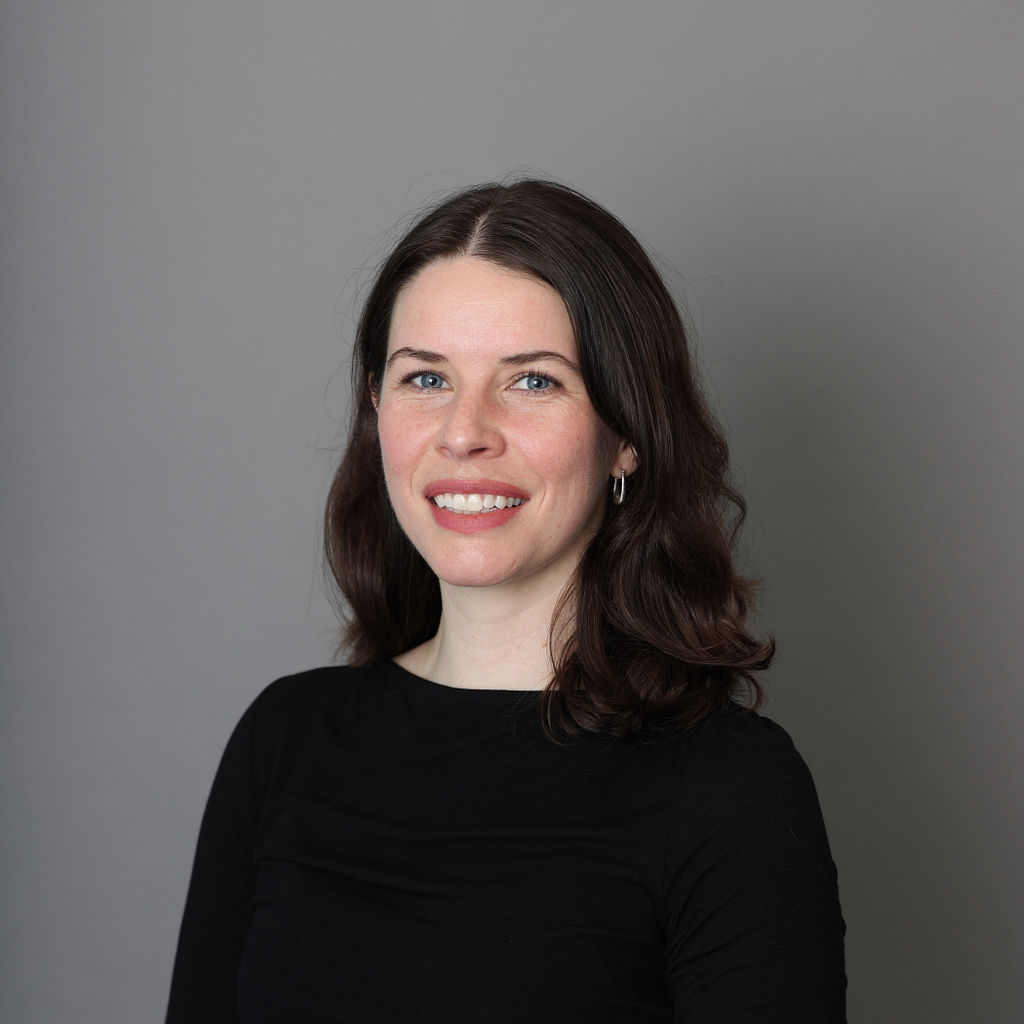
Sara Roach
Initiative
Advancing Equitable EV Charging Infrastructure
Role and Organization
Project Manager at
LeadingAhead Energy
Mentor
Shayna Rector Bleeker, Cofounder & VP Strategic Partnerships, 7 Generation Capital
About Sara
Sara is passionate about building sustainable and inclusive urban infrastructure that supports the transition to a low-carbon future while enhancing biodiversity and promoting walkable, user-friendly public spaces. She brings a strong background in project management, design, and renewable infrastructure, with a focus on integrating climate resilience and ecological enhancement into the public and private realm.
With experience in residential design and construction, she transitioned into the EV sector to bridge the gap between sustainability goals and real-world implementation. Currently, she works at LeadingAhead Energy, where she oversees complex EV infrastructure projects, ensuring they meet both technical and community needs. She is also engaged in policy advocacy and industry collaborations to advance equitable access to EV charging while incorporating green infrastructure to support biodiversity.
Beyond work, Sara enjoys exploring cities and the backcountry by bike, on foot and on skis, traveling to experience innovative urban spaces, and engaging in community-driven sustainability initiatives. She believes in the power of design and strategic planning to create meaningful change in public infrastructure, climate resilience, and ecological health.
With experience in residential design and construction, she transitioned into the EV sector to bridge the gap between sustainability goals and real-world implementation. Currently, she works at LeadingAhead Energy, where she oversees complex EV infrastructure projects, ensuring they meet both technical and community needs. She is also engaged in policy advocacy and industry collaborations to advance equitable access to EV charging while incorporating green infrastructure to support biodiversity.
Beyond work, Sara enjoys exploring cities and the backcountry by bike, on foot and on skis, traveling to experience innovative urban spaces, and engaging in community-driven sustainability initiatives. She believes in the power of design and strategic planning to create meaningful change in public infrastructure, climate resilience, and ecological health.
About Initiative
Sara Roach is a project manager at LeadingAhead Energy, specializing in electric vehicle (EV) infrastructure deployment. Her work focuses on ensuring that EV charging solutions are not only widely available but also designed with equity, accessibility, long-term sustainability, and ecological enhancement in mind. High installation costs, technical constraints, and regulatory hurdles often prevent equitable adoption of EV technology.
To overcome these barriers, Sara collaborates with municipalities, developers, and utility providers to create scalable, cost-effective solutions that align with climate action plans. Additionally, she prioritizes integrating green infrastructure, such as native plantings and pollinator-friendly landscapes, to enhance biodiversity. She is also involved in advocating for policy improvements and funding incentives to support widespread EV adoption. By leveraging data-driven insights and community engagement, her initiative helps shape a future where clean transportation is accessible to all while fostering vibrant, pedestrian-friendly environments that encourage repeat user engagement and increased foot traffic to local businesses.
To overcome these barriers, Sara collaborates with municipalities, developers, and utility providers to create scalable, cost-effective solutions that align with climate action plans. Additionally, she prioritizes integrating green infrastructure, such as native plantings and pollinator-friendly landscapes, to enhance biodiversity. She is also involved in advocating for policy improvements and funding incentives to support widespread EV adoption. By leveraging data-driven insights and community engagement, her initiative helps shape a future where clean transportation is accessible to all while fostering vibrant, pedestrian-friendly environments that encourage repeat user engagement and increased foot traffic to local businesses.
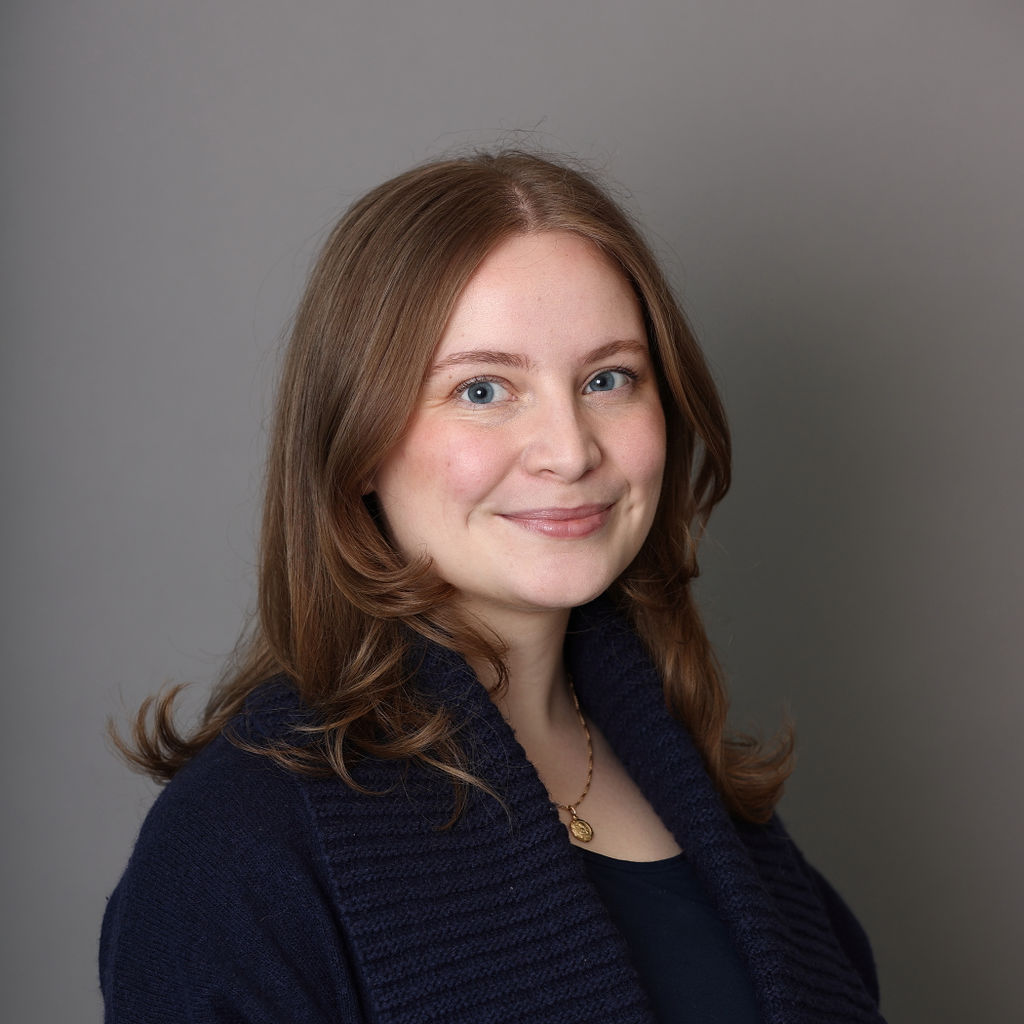
Michelle Scarr
Initiative
Building a Movement for Better Transit in Metro Vancouver
Role and Organization
Director of Operations and Strategy at
Movement: Metro Vancouver Transit Riders
Mentor
Iona Bonamis,
Lead Planner,
Translink
About Michelle
Michelle really got to know the transit system in Metro Vancouver during her 1.5 hour per direction bus-skytrain-bus commute between her hometown Burnaby and UBC. She graduated with a math degree, and then moved to a walkable, central neighbourhood in Ottawa and worked as a statistician for the federal government for a few years. In 2021 she witnessed devastation in her home province from the heat dome and flooding, and realized that while enough data exists to inform what must be done to fight climate change, what’s missing is a lack of political will from our leaders. She returned to the transit-lacking suburbs of Metro Vancouver in 2021, and since then has worked on various political campaigns and advocacy groups (like Movement) that aspire to build equitable, sustainable, and safe cities. She sees incredible potential in the sustainability improvements that can be made at the local level of government and truly believes that we can and will make transit way better. She also enjoys playing ultimate frisbee and hiking.
About Initiative
Michelle is the Director of Strategy and Operations at Movement: Metro Vancouver Transit Riders where she organizes transit riders to speak up for better transit. Governments often hear from motorists, while transit riders are more likely to be left out of regional conversation and decision-making. Metro Vancouver has one million transit riders, 40% of our population, and cities with much lower levels of transit ridership have demonstrated that when transit riders are organized and work together they can win enormous improvements in the network. We’re launching campaigns, building relationships, and doing outreach directly at bus stops to grow our movement and ask our leaders to invest in infrastructure, fund transit, and act in alignment with their climate and mode shift goals. Three Bus Rapid Transit (BRT) routes are in the planning stages across the region, so one of our focuses is to engage with transit riders and amplify their voices for route alignments and road space reallocation.
